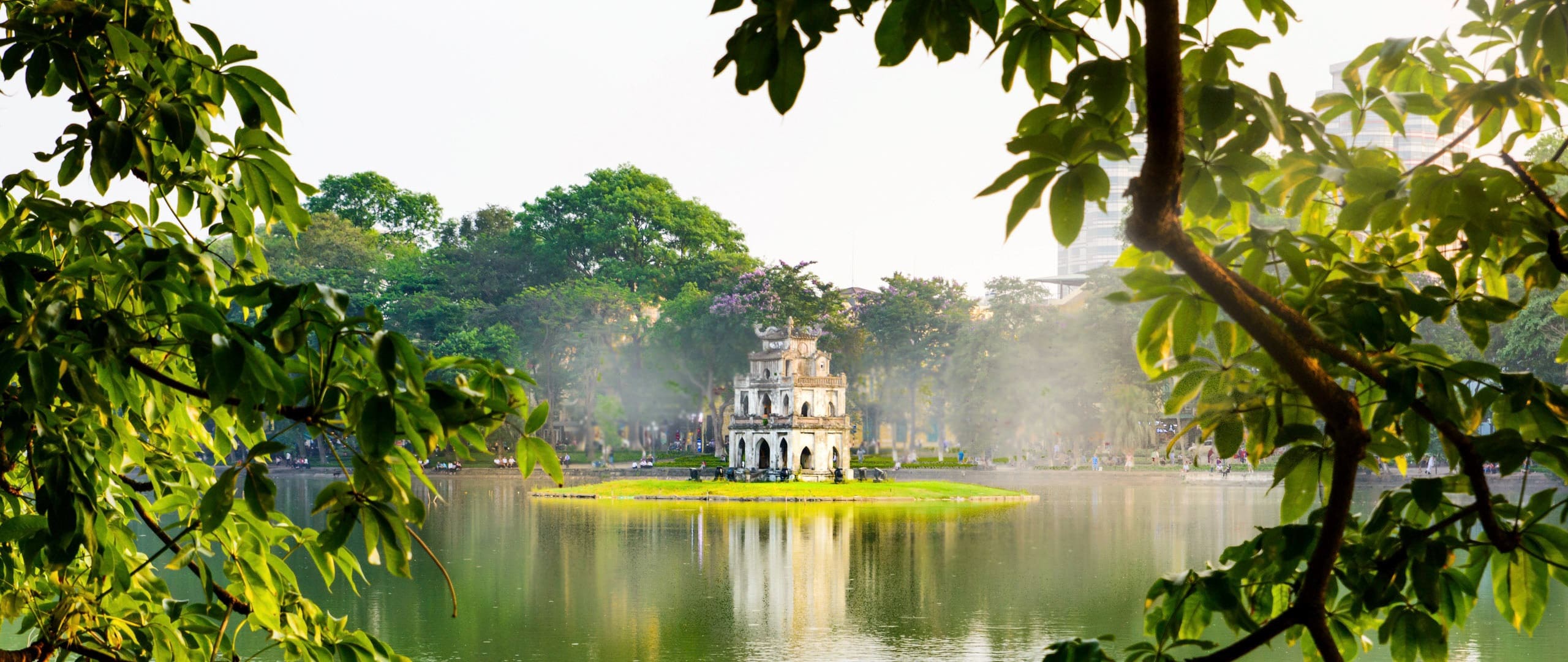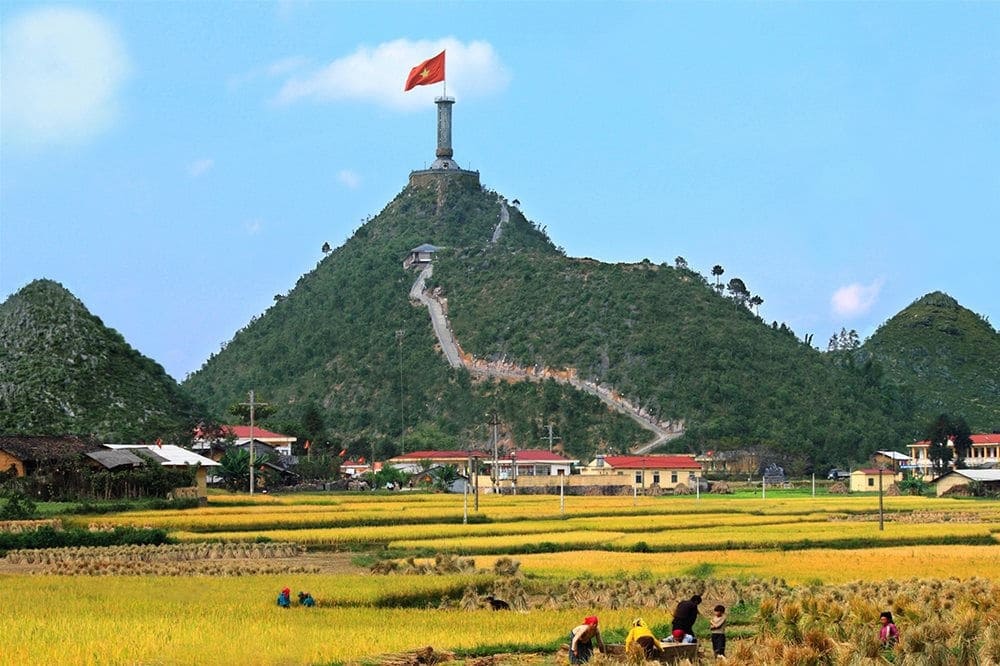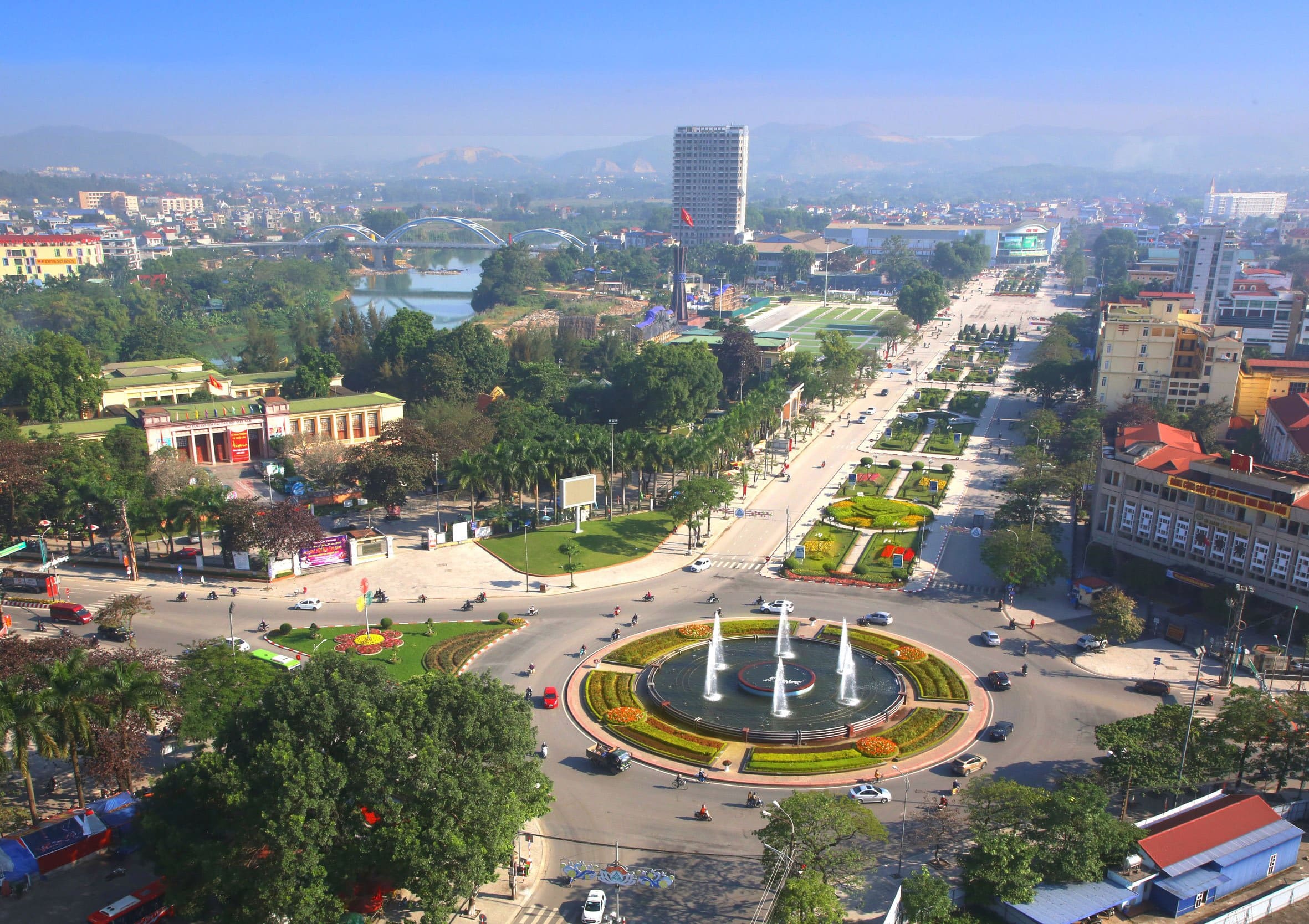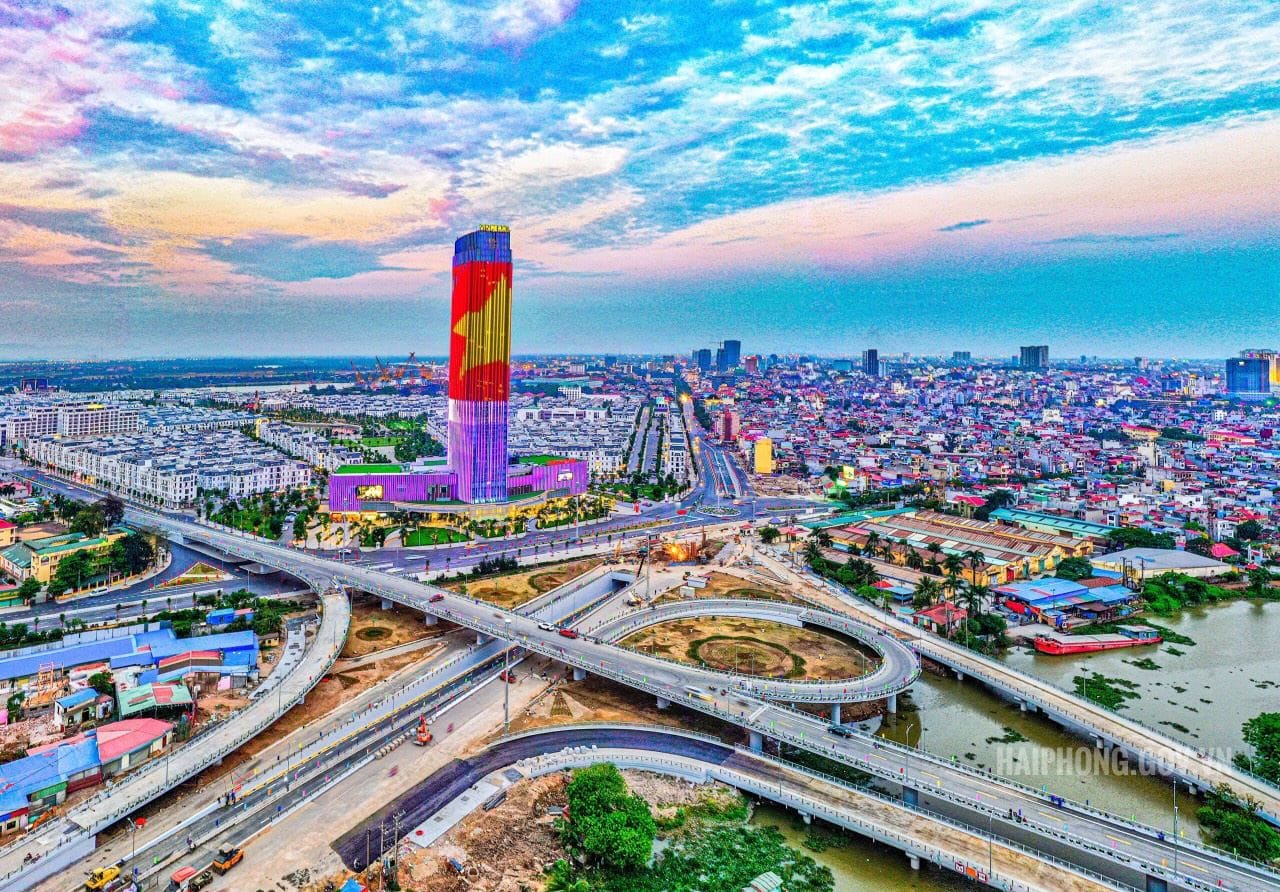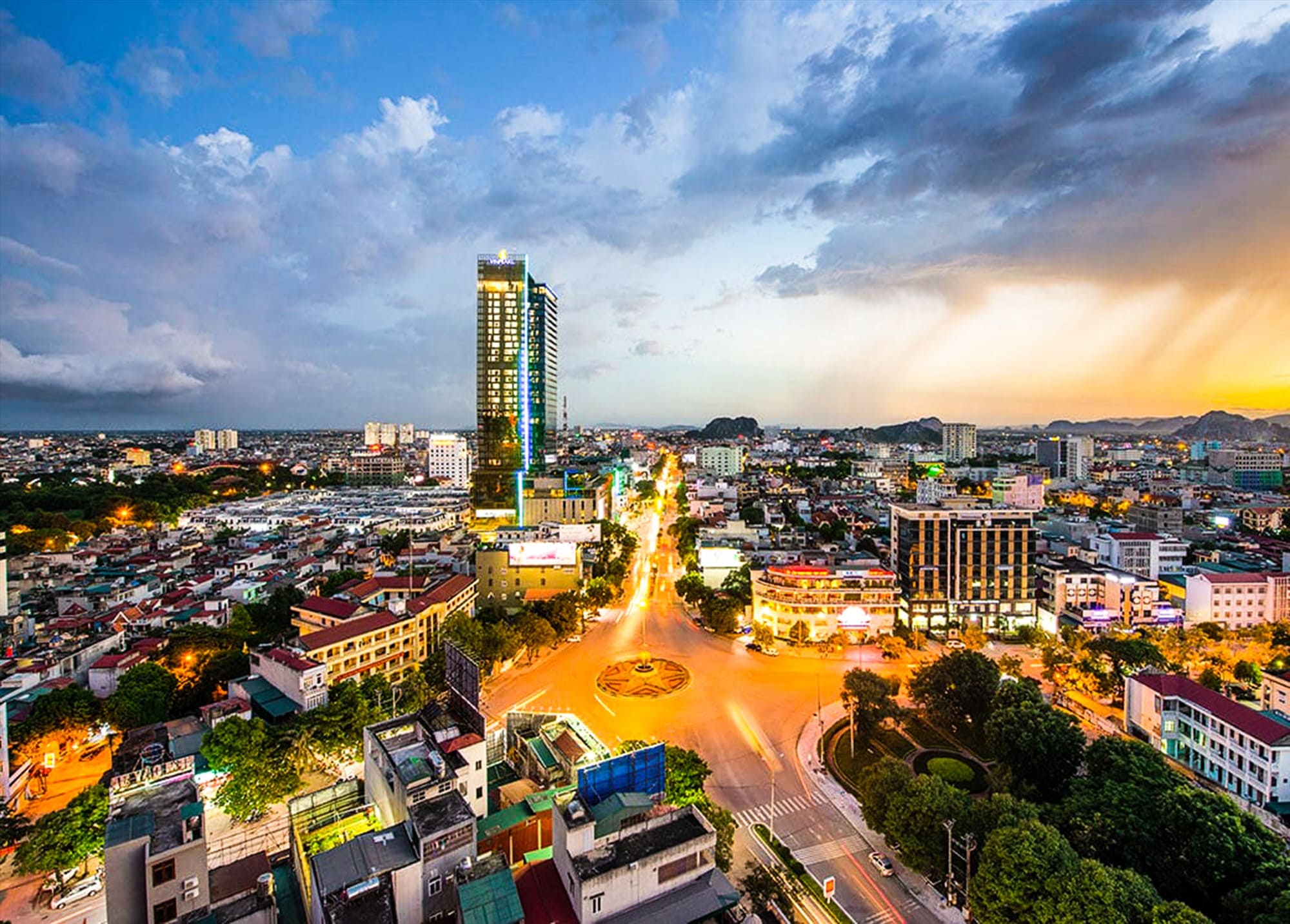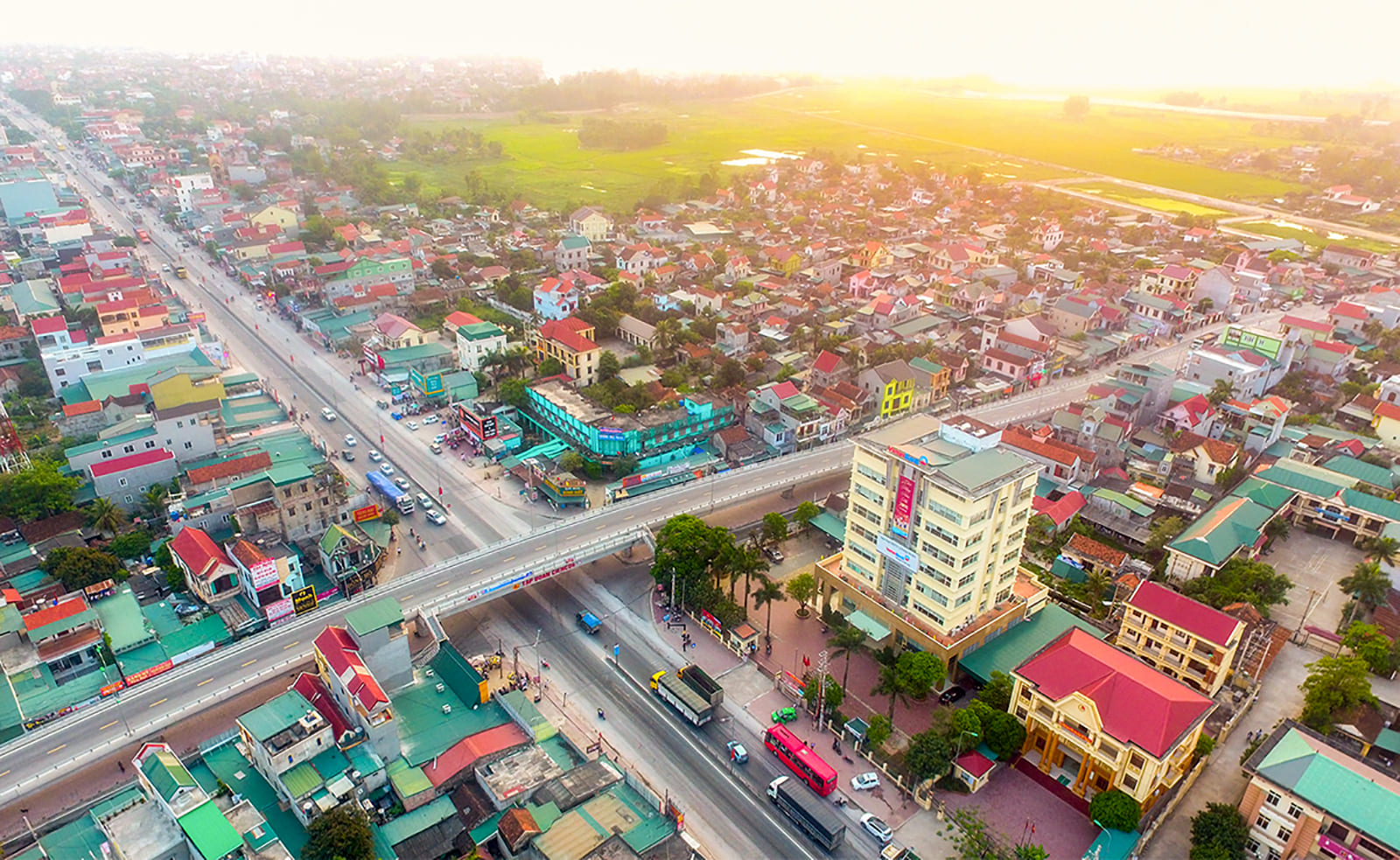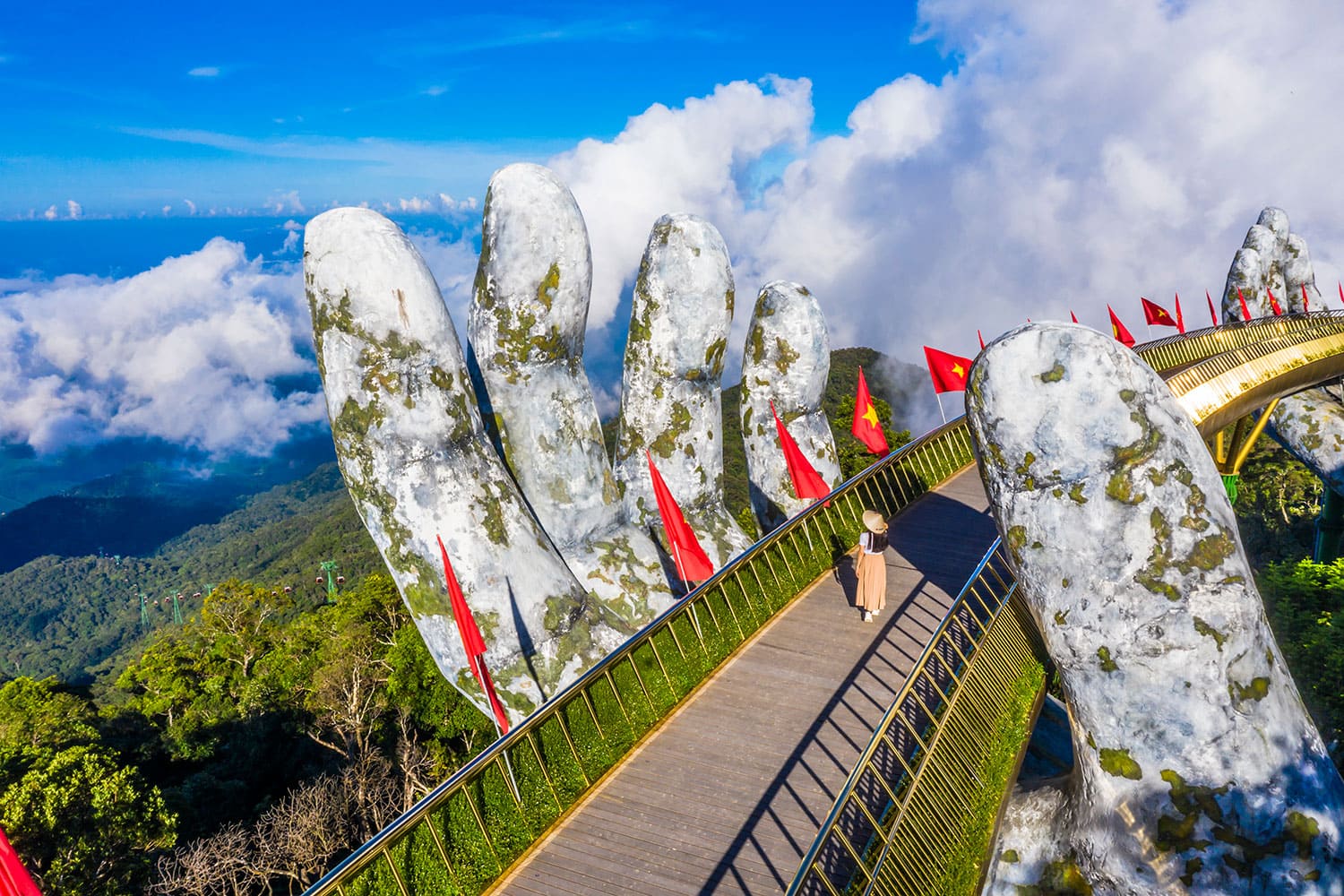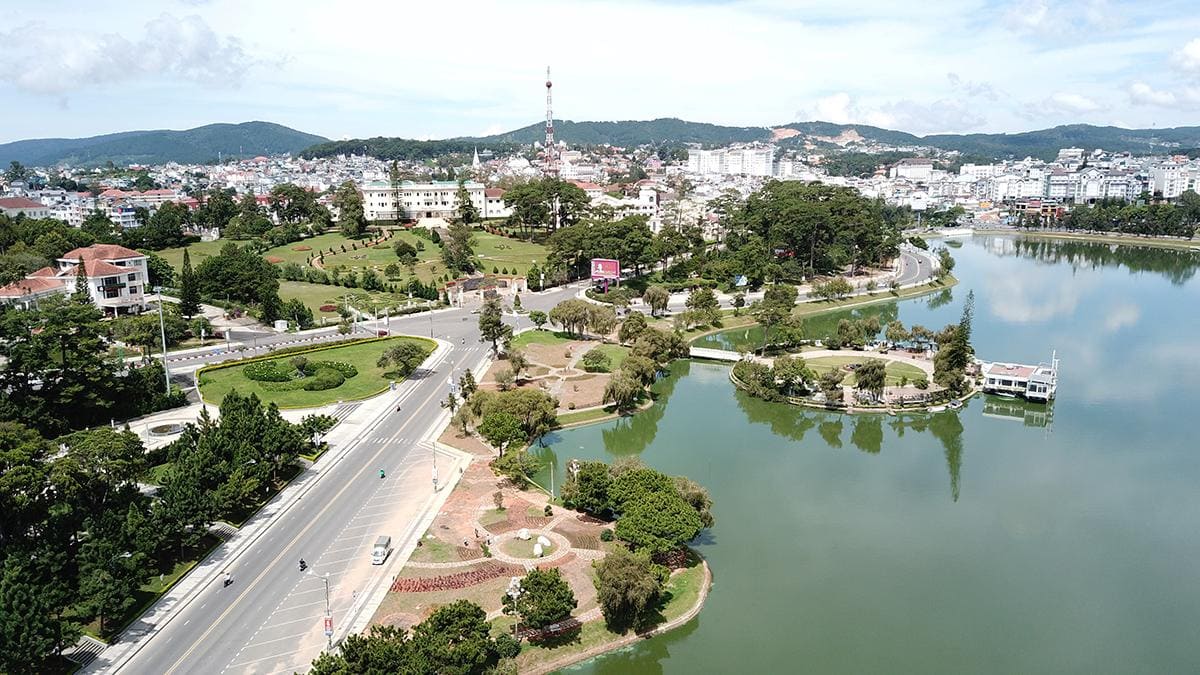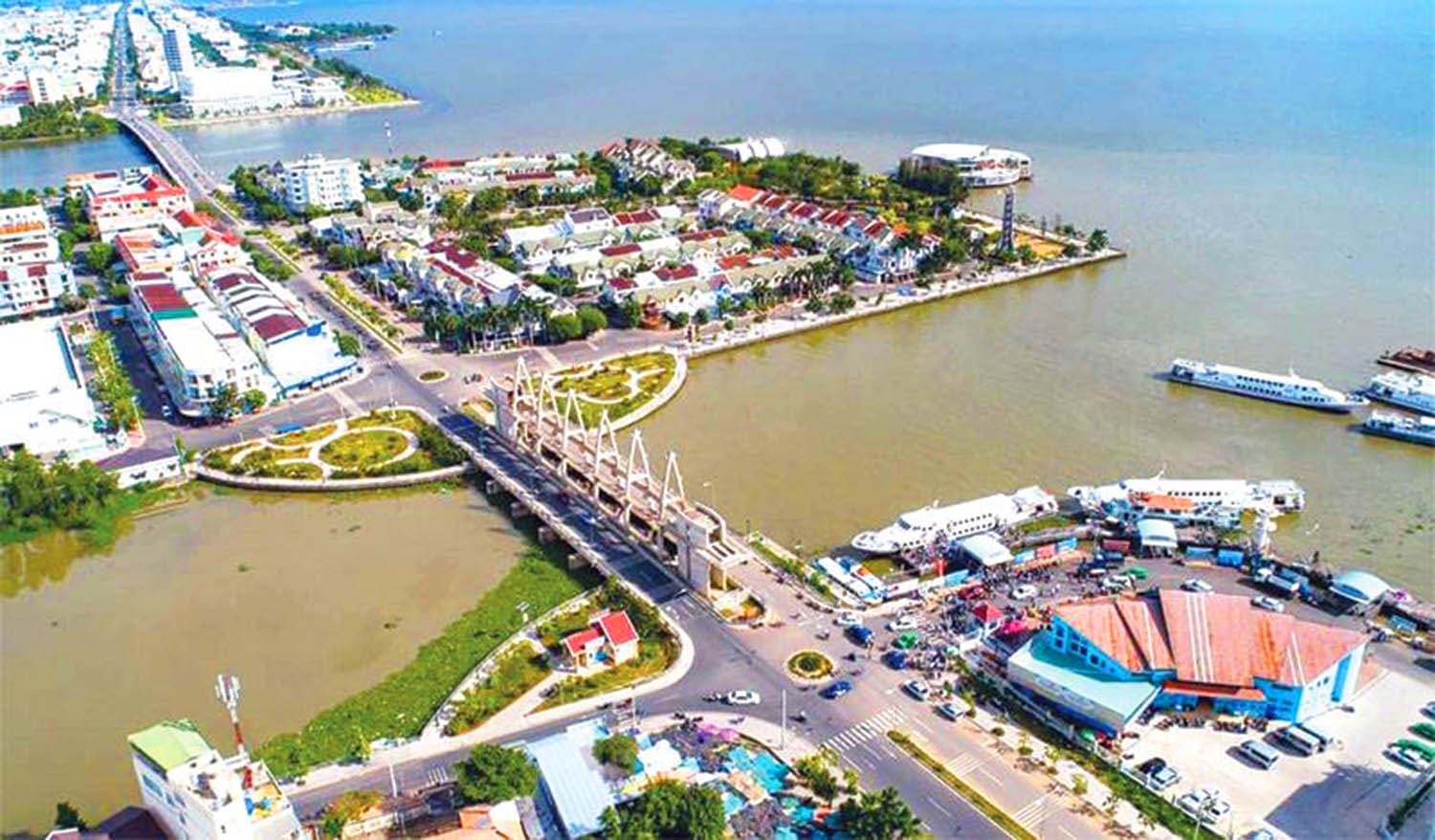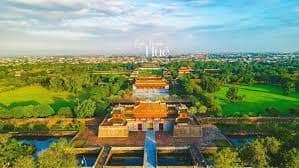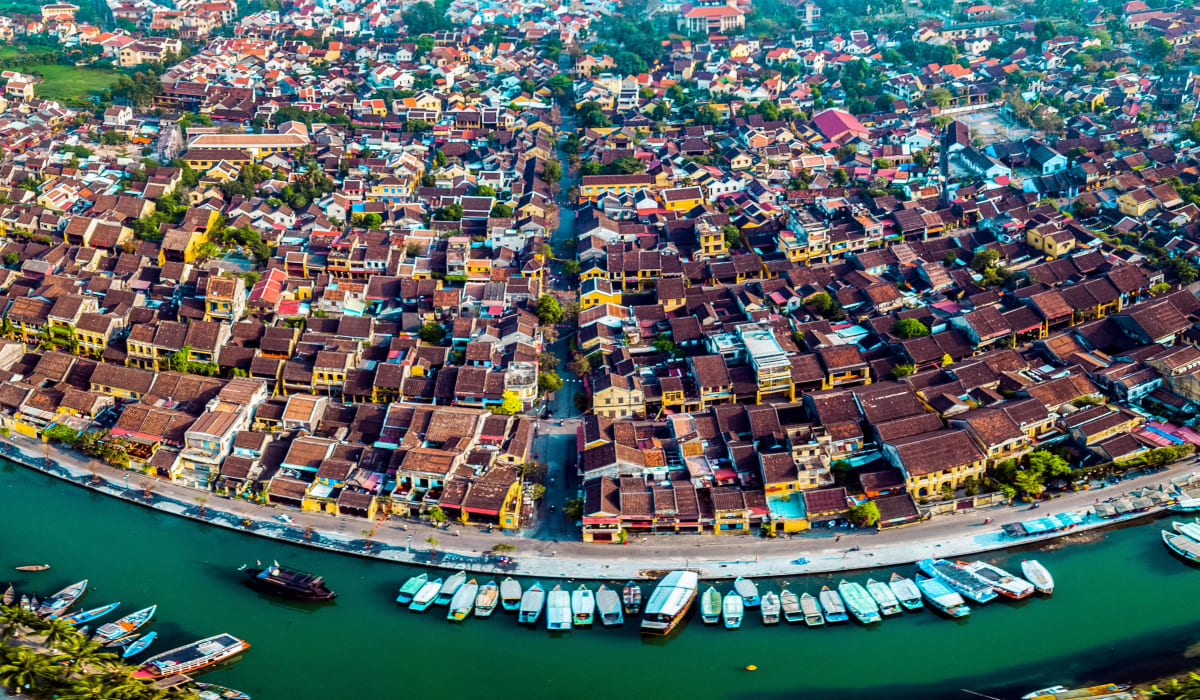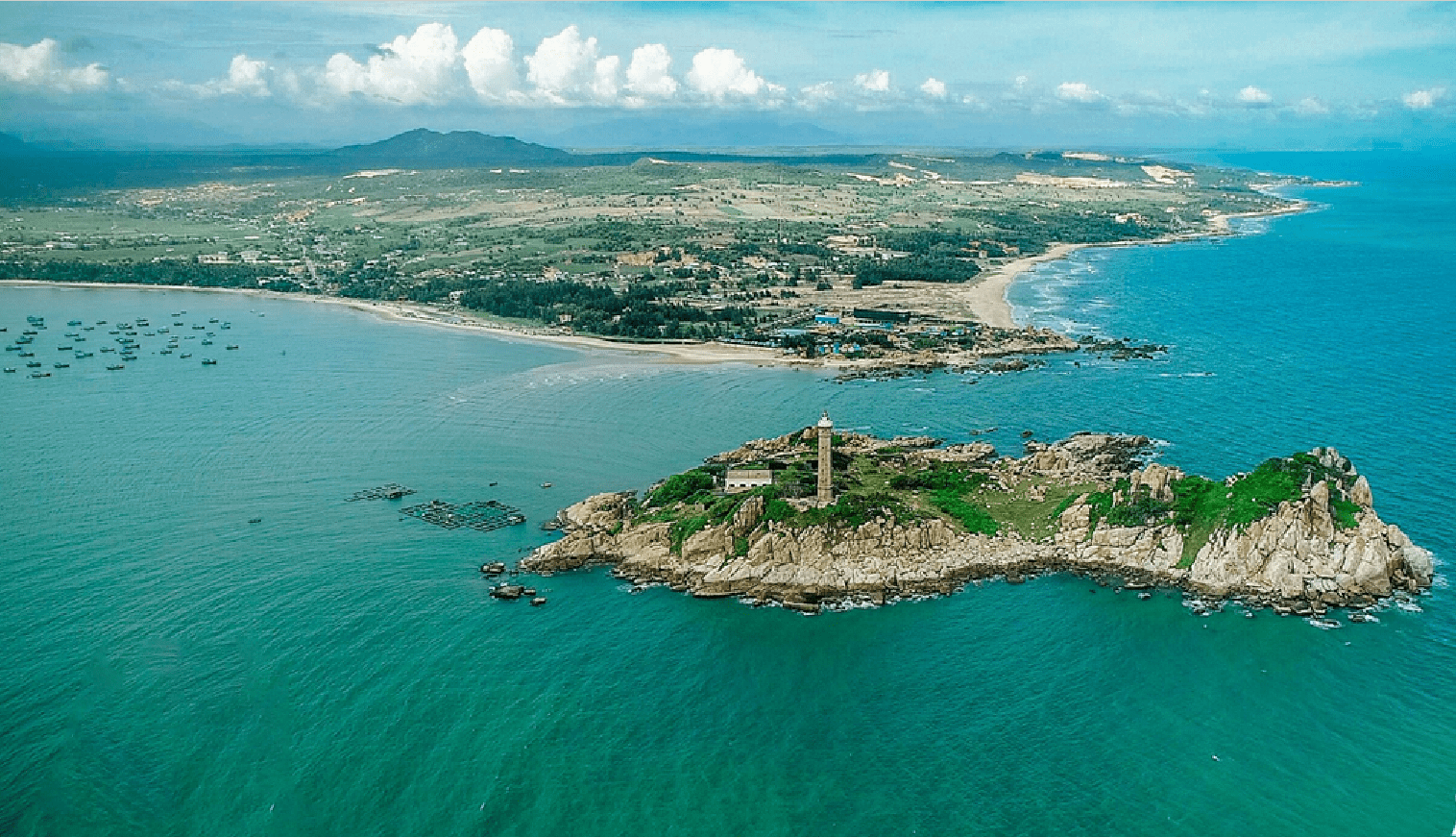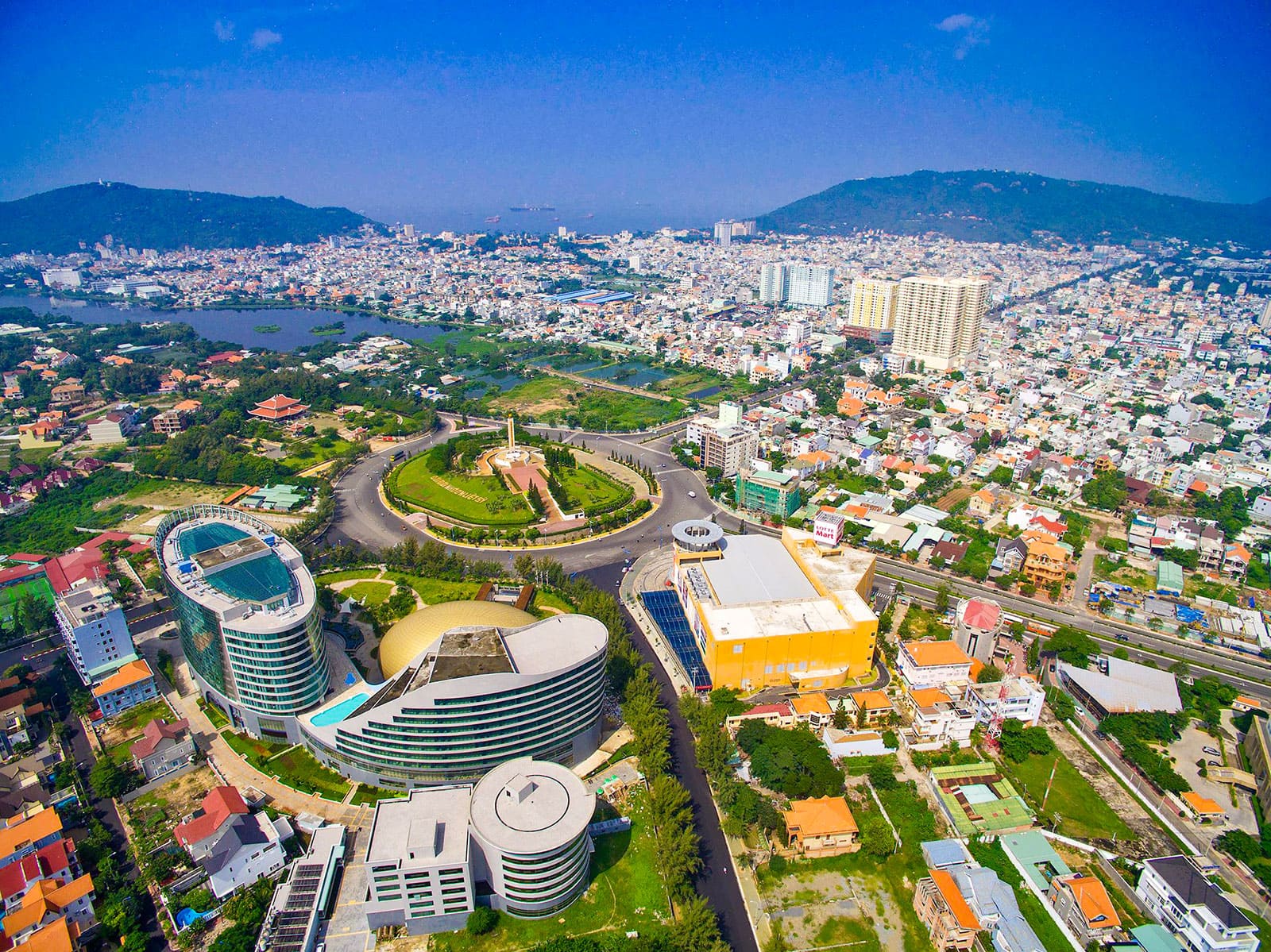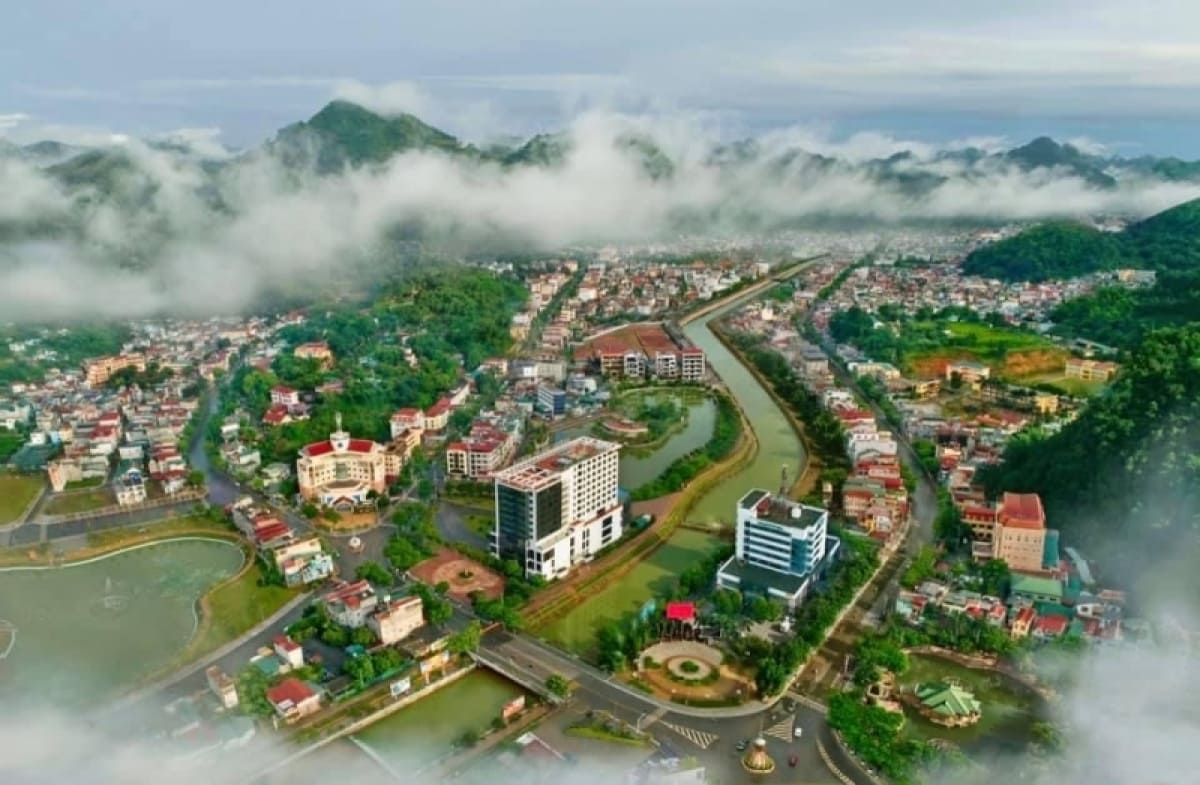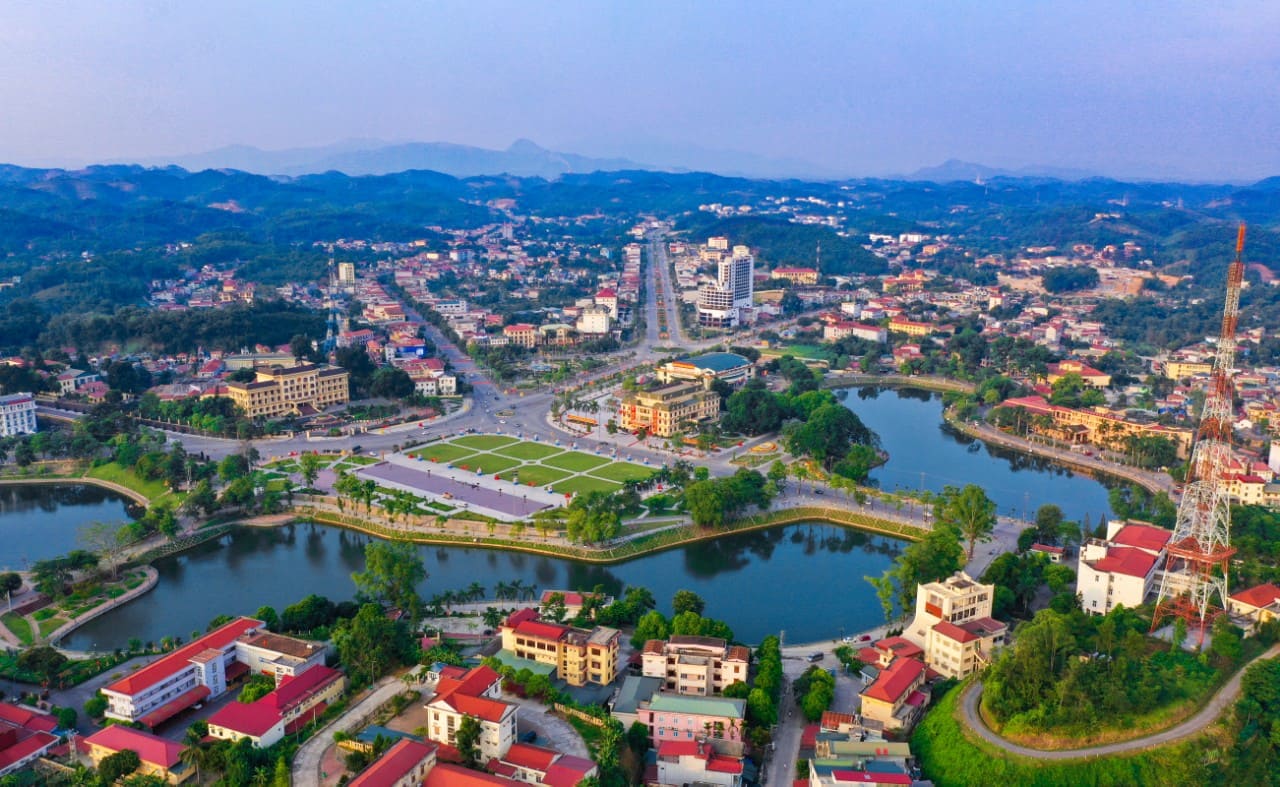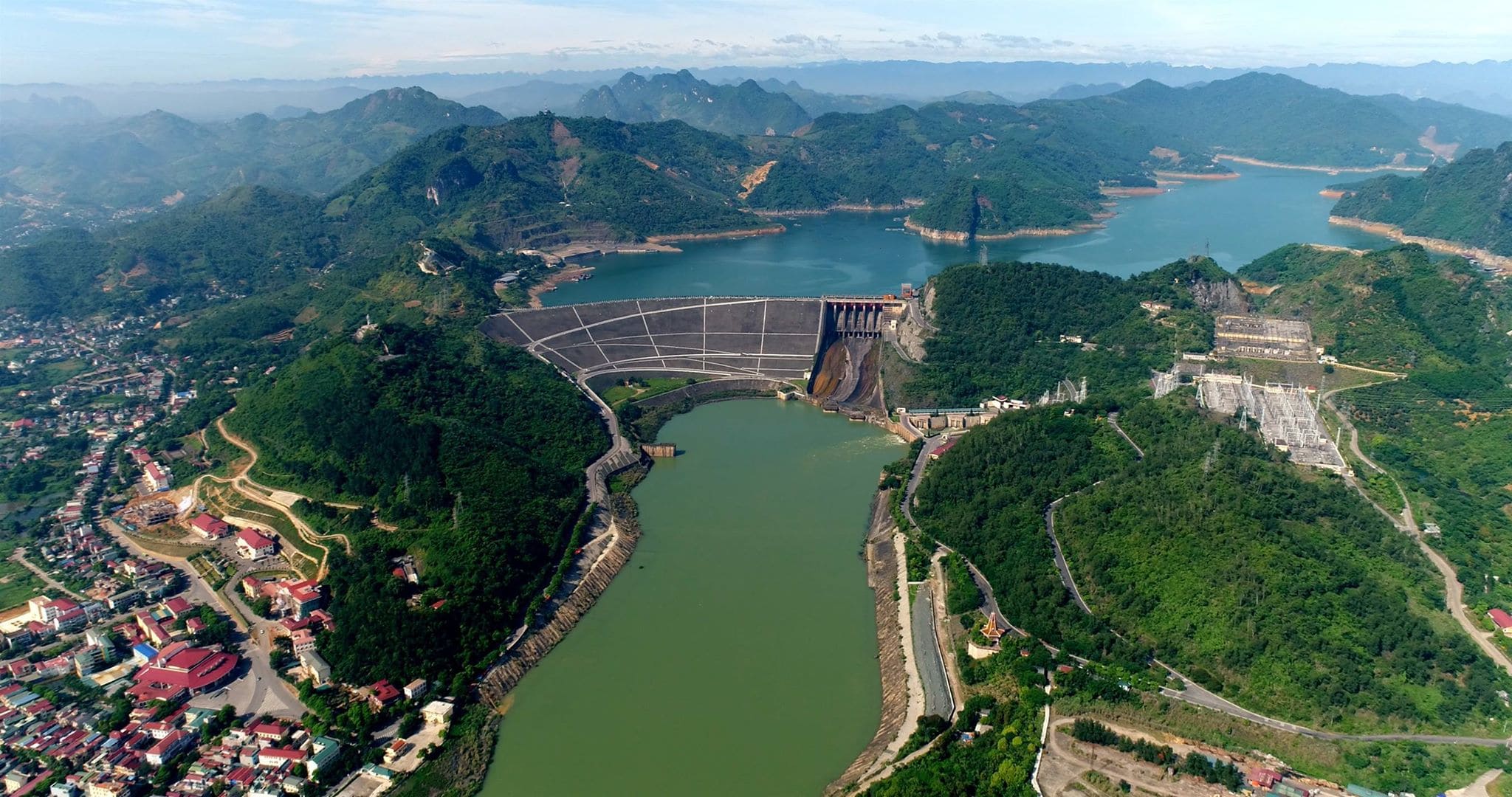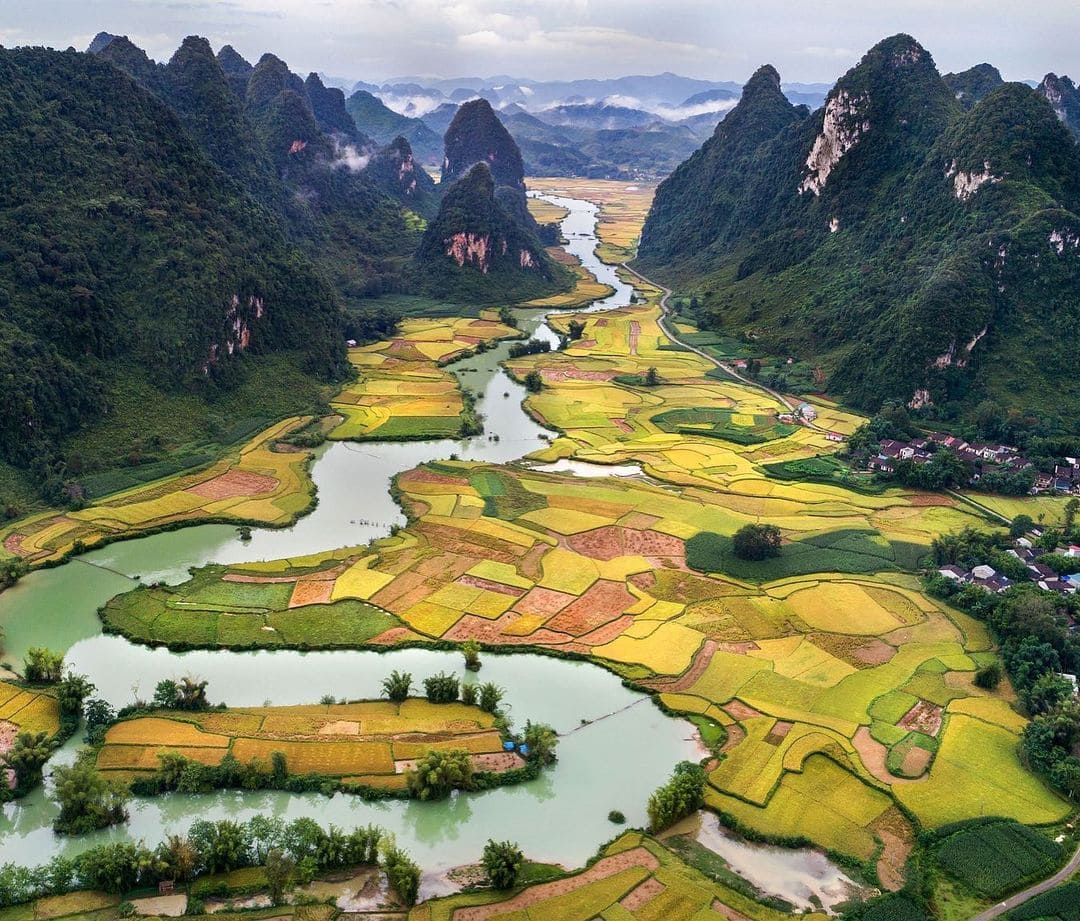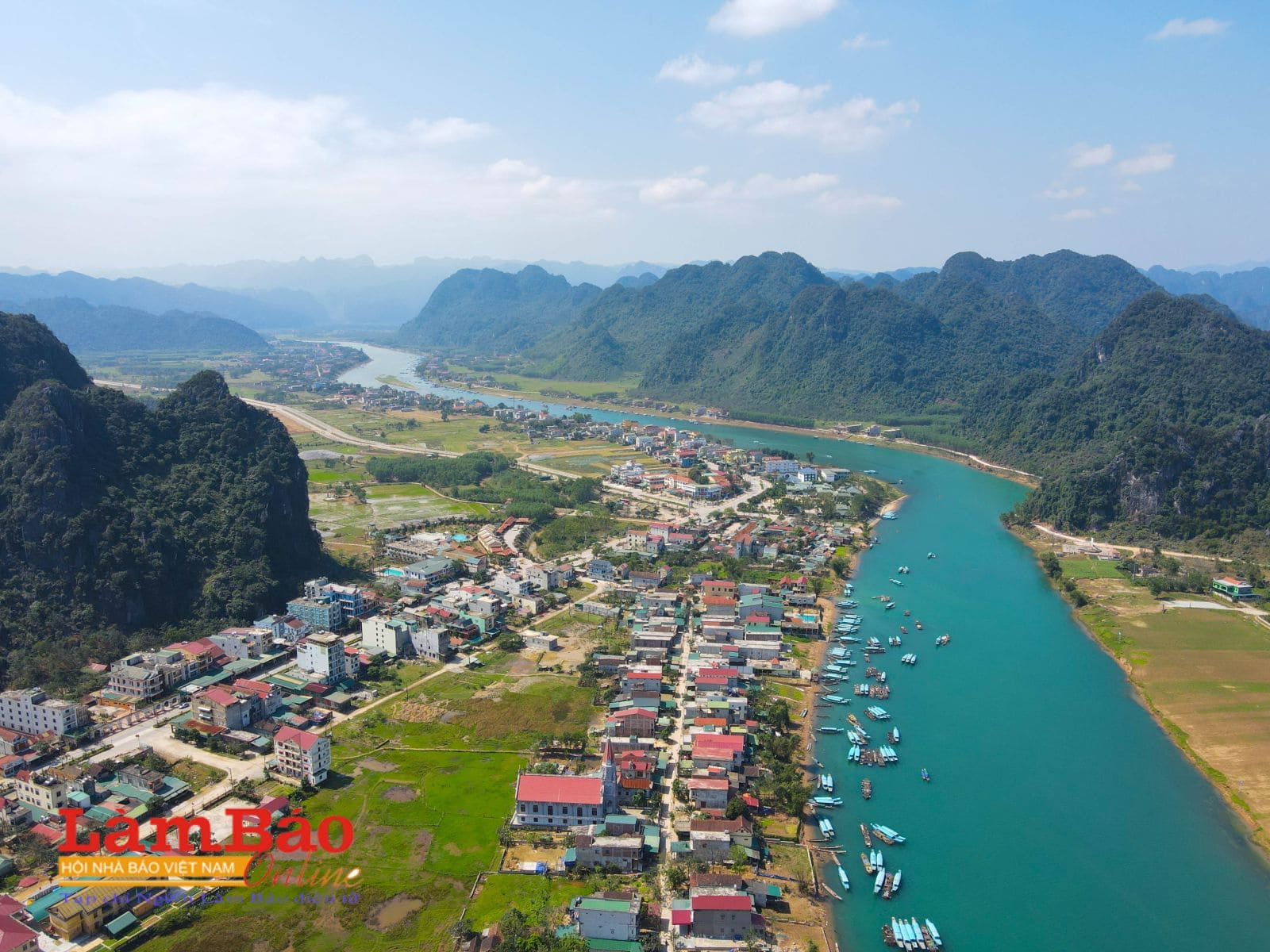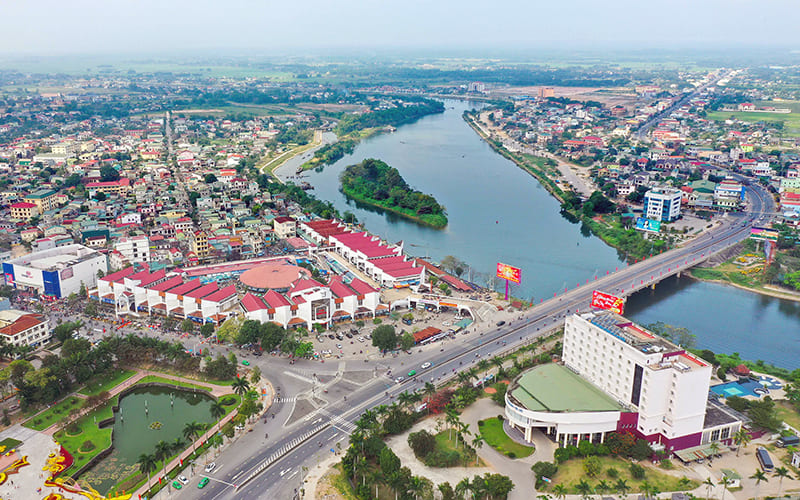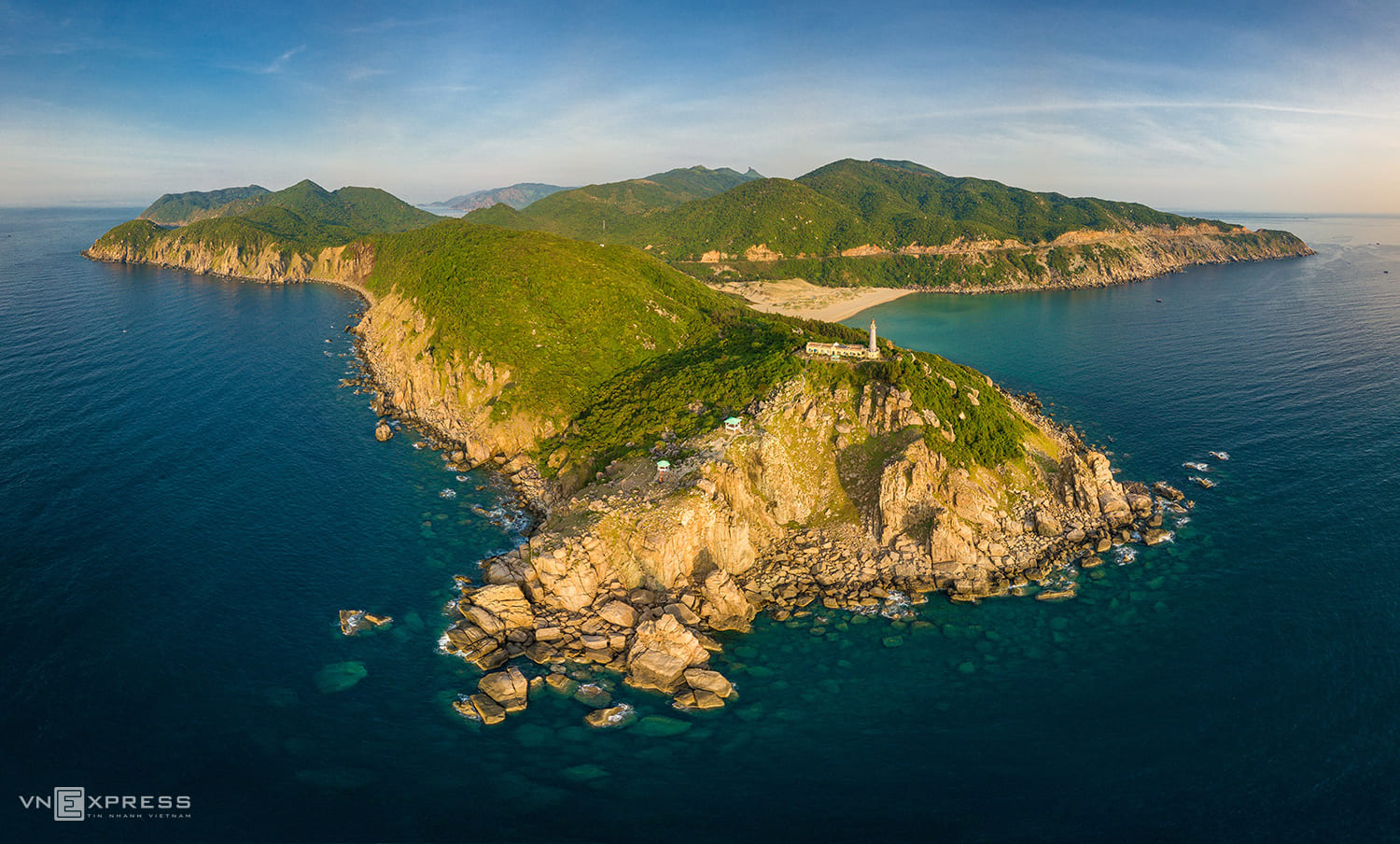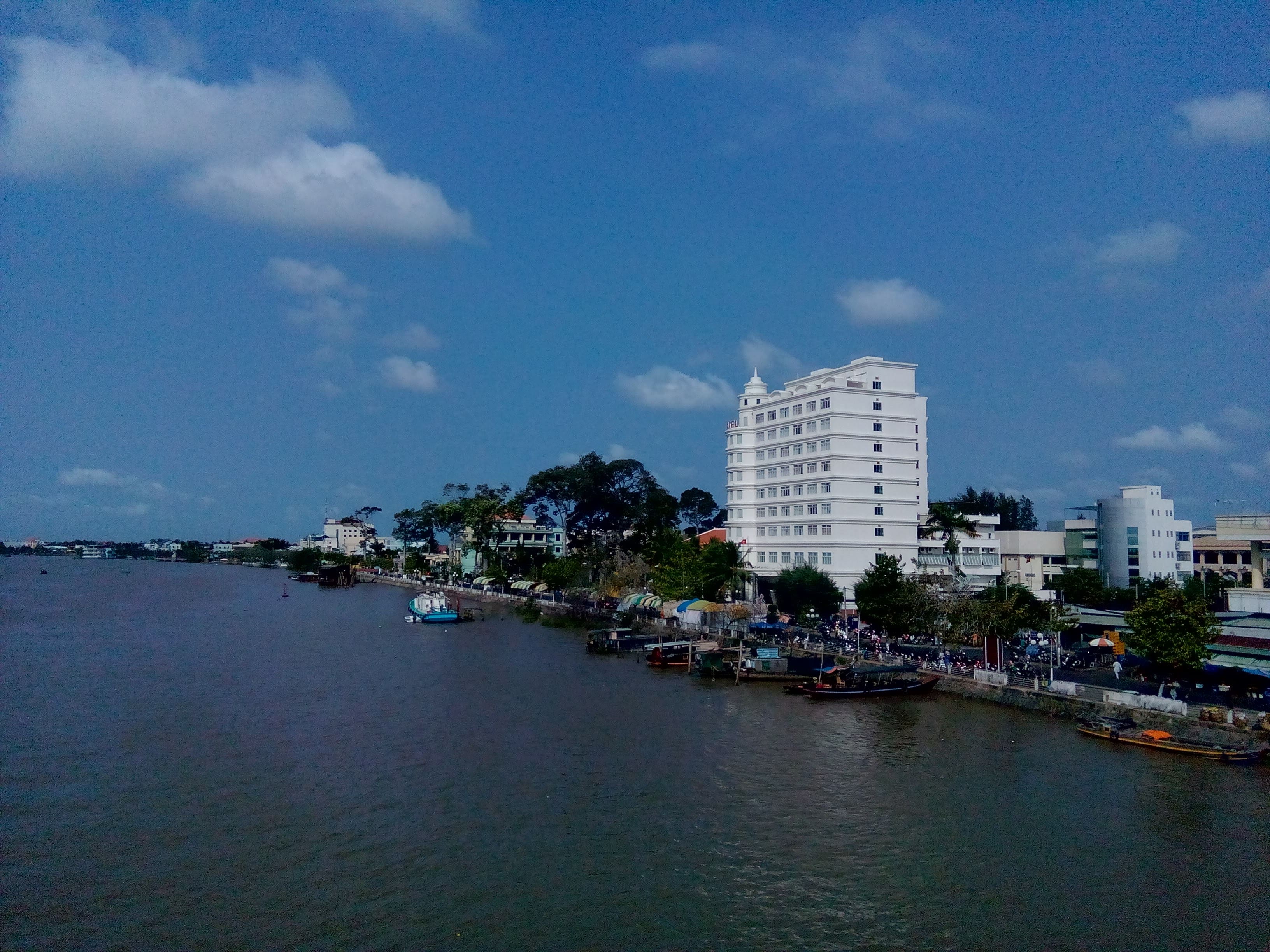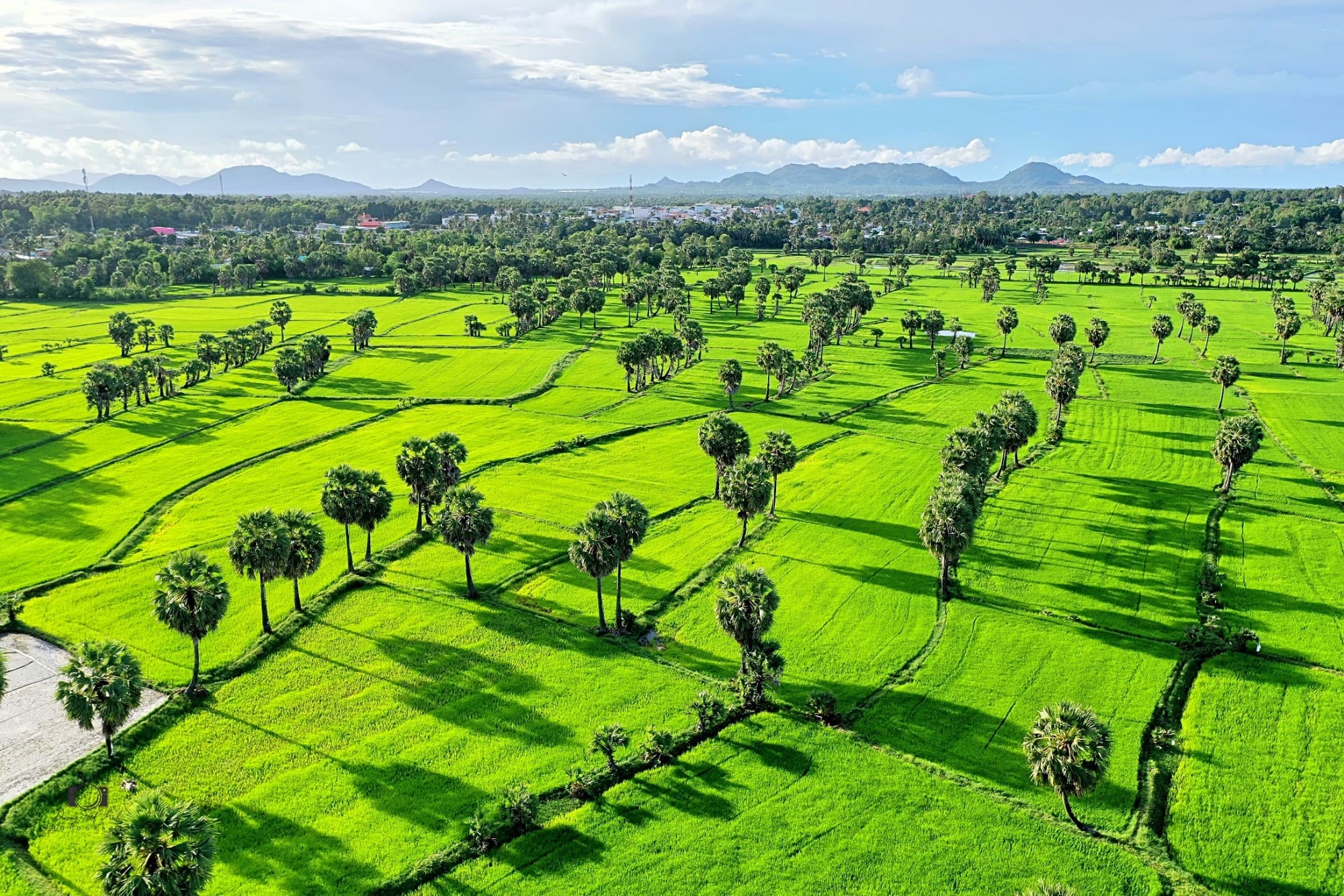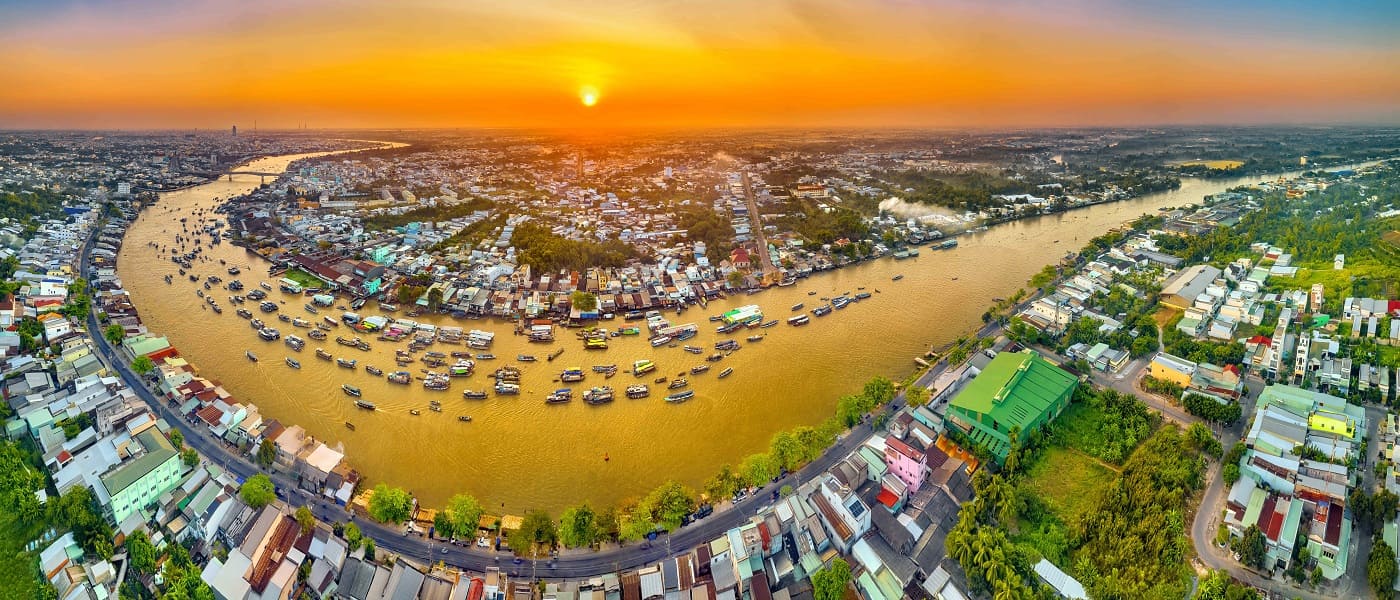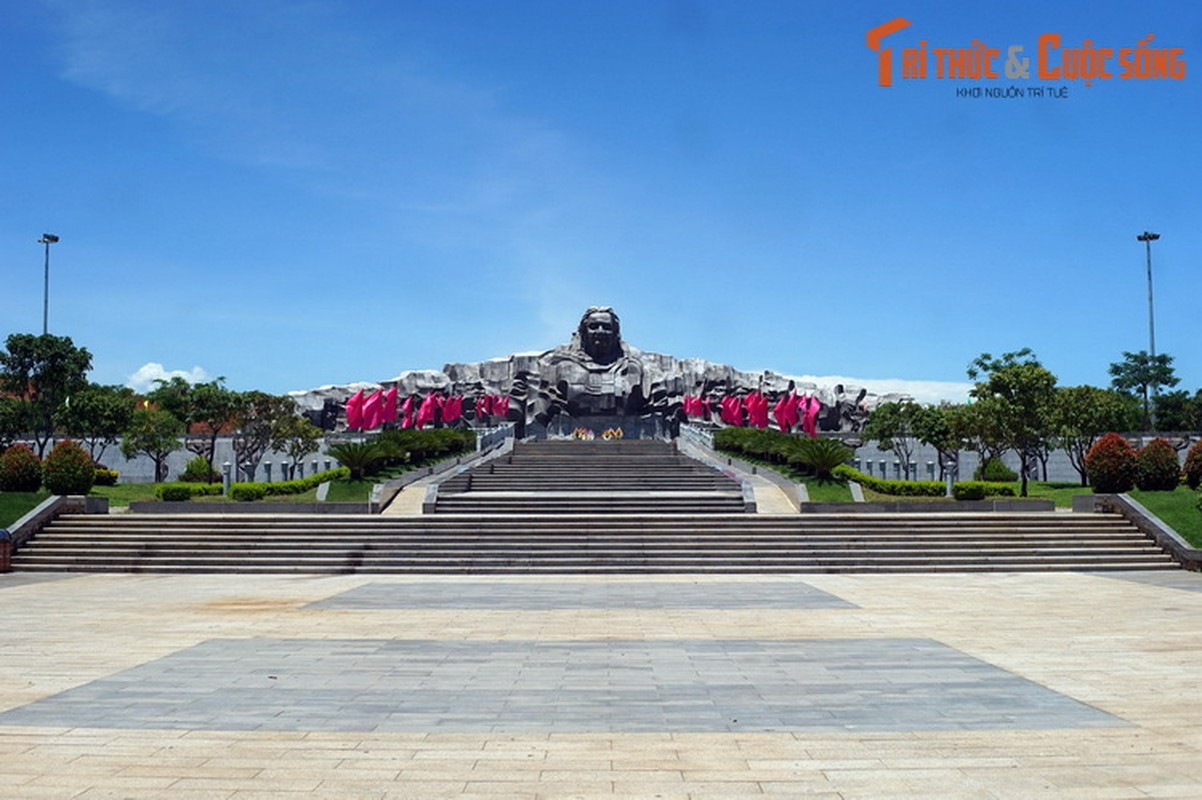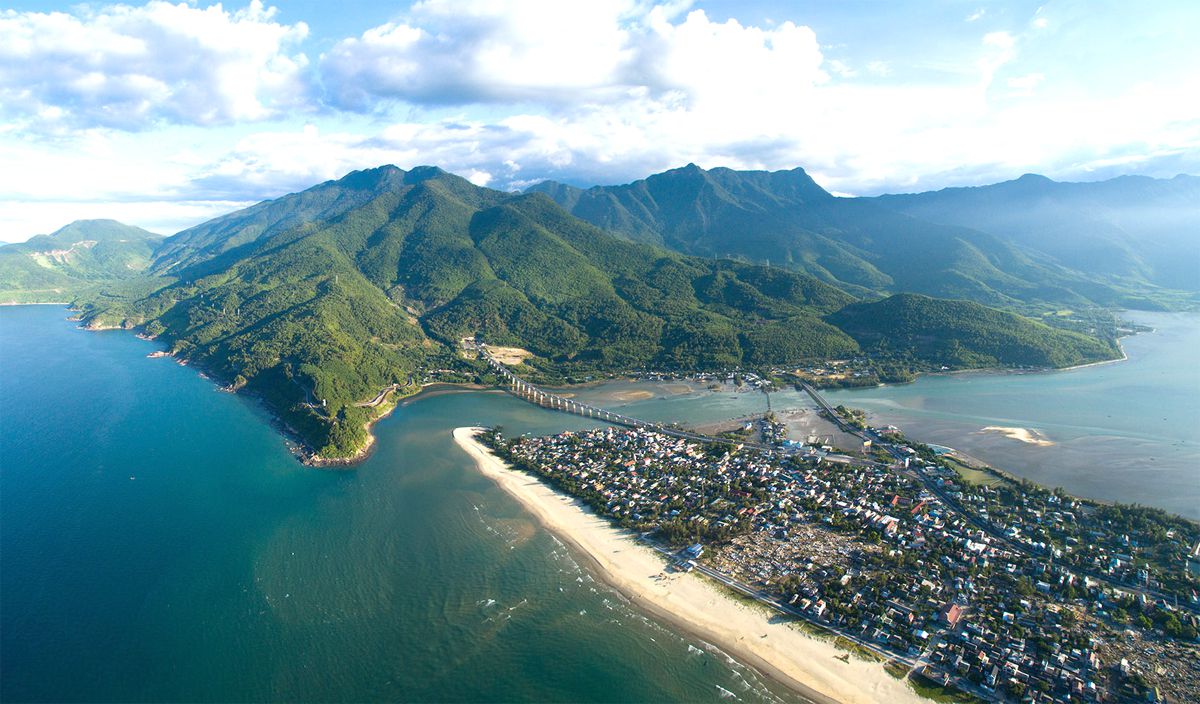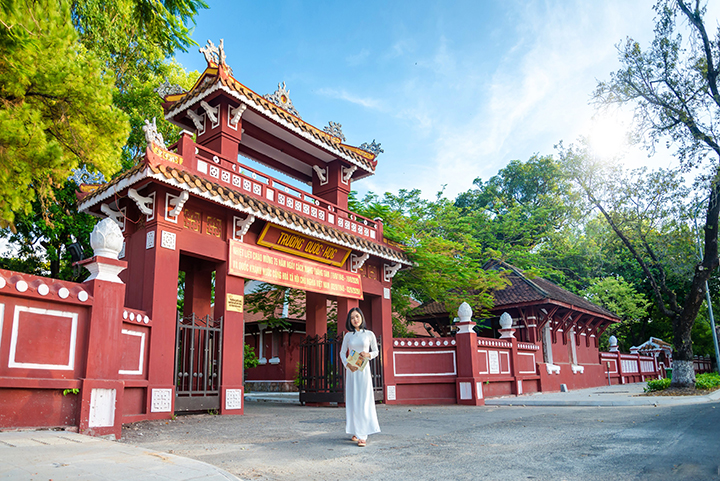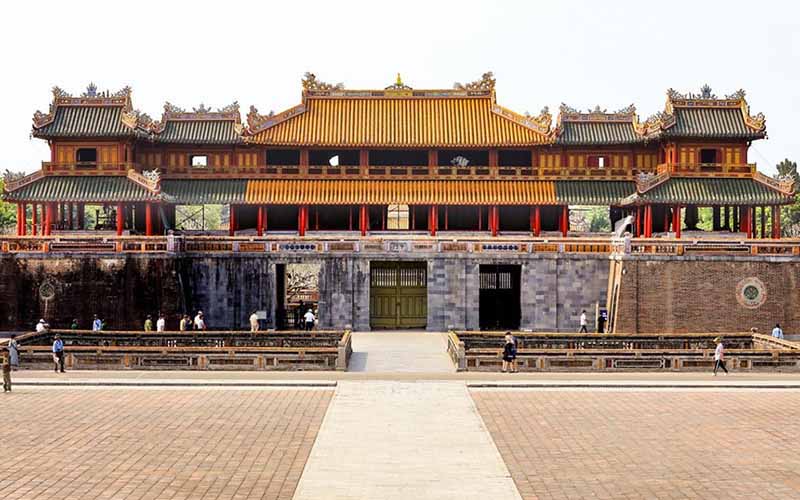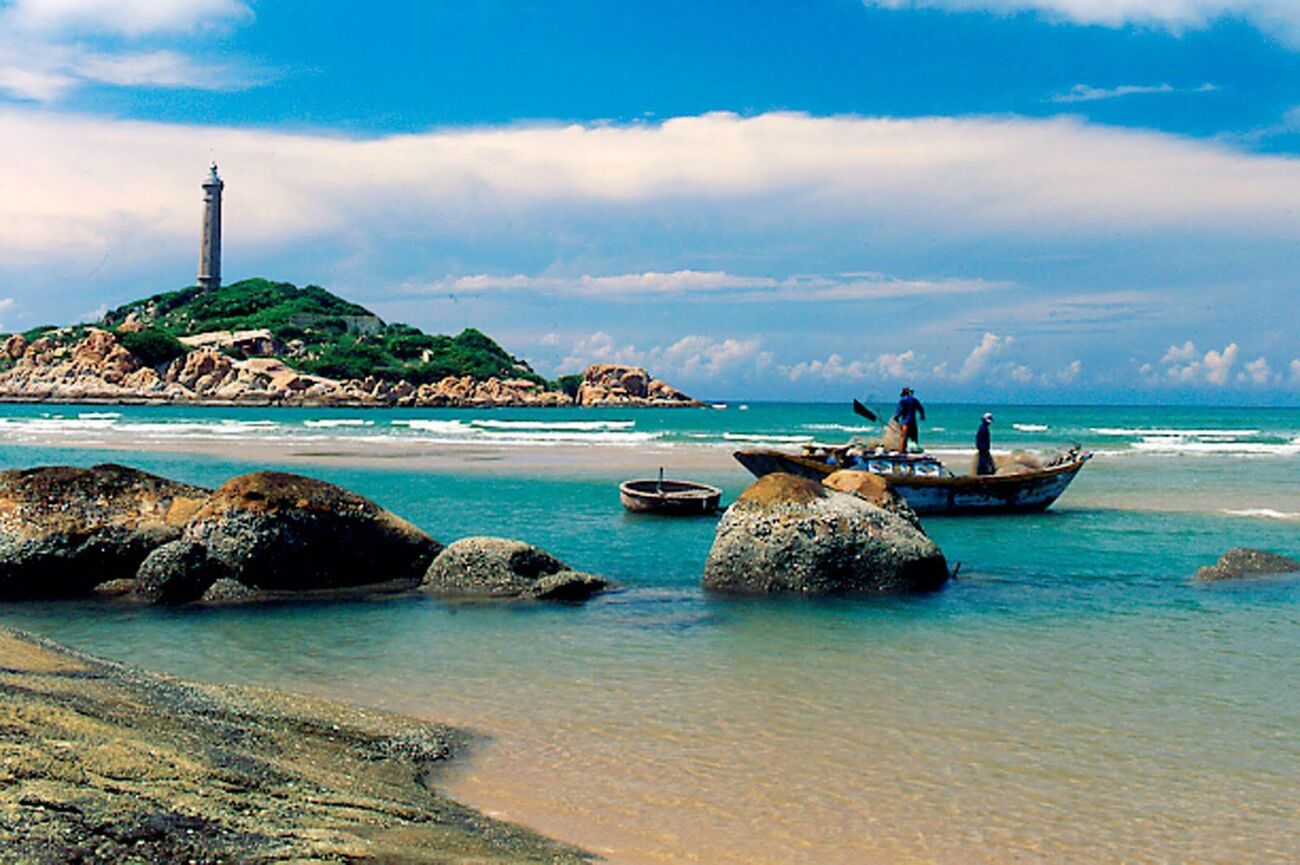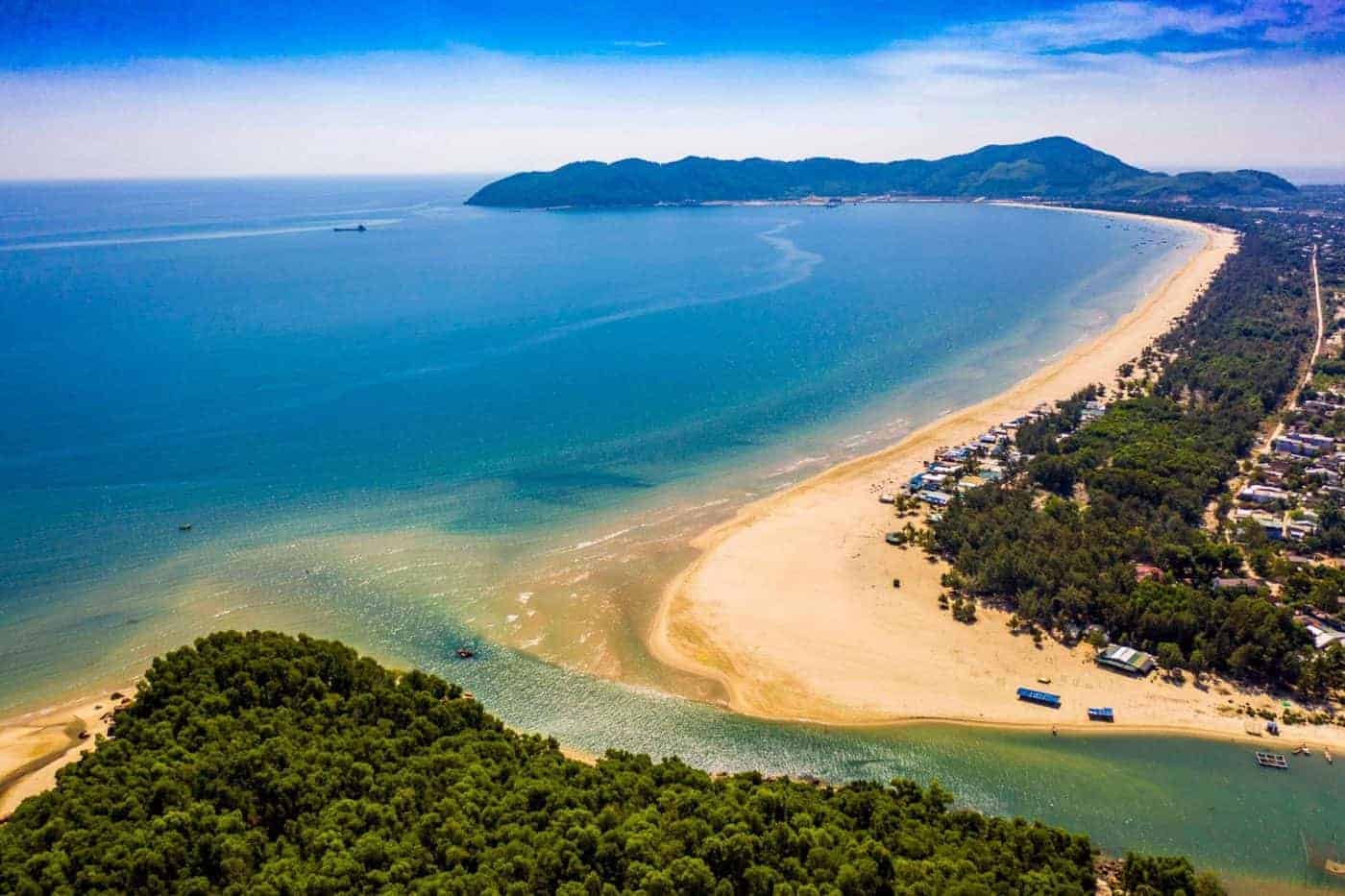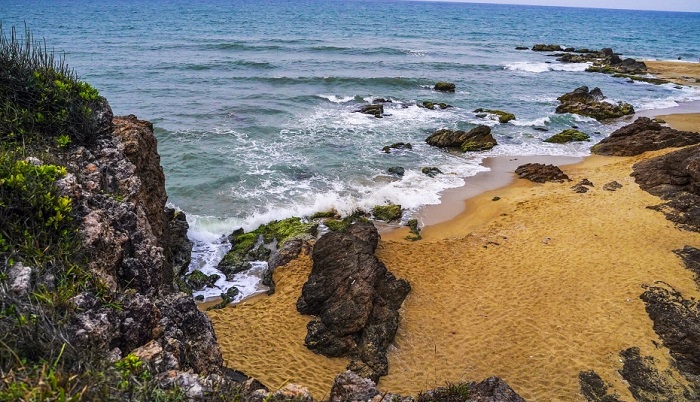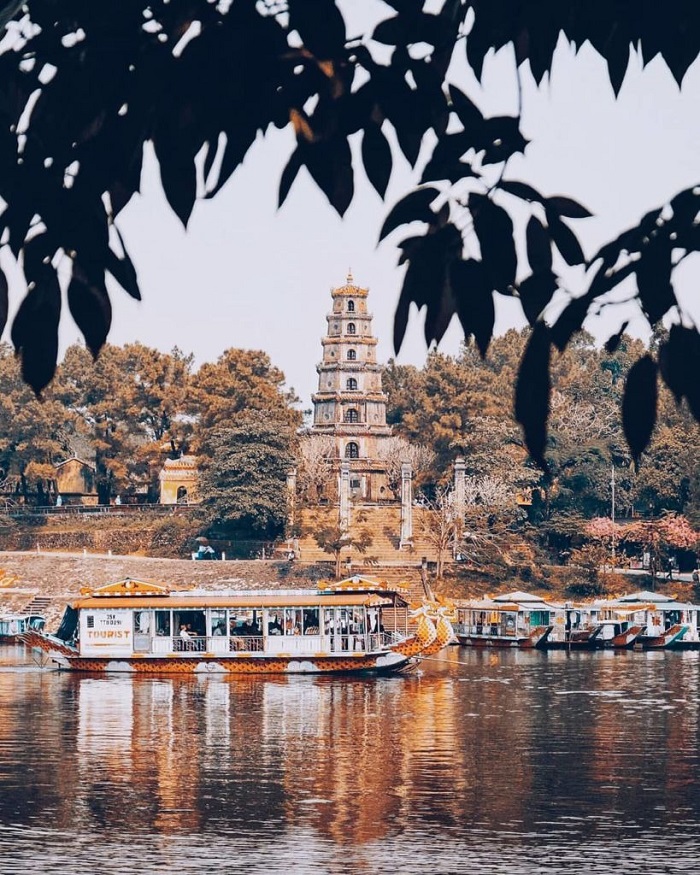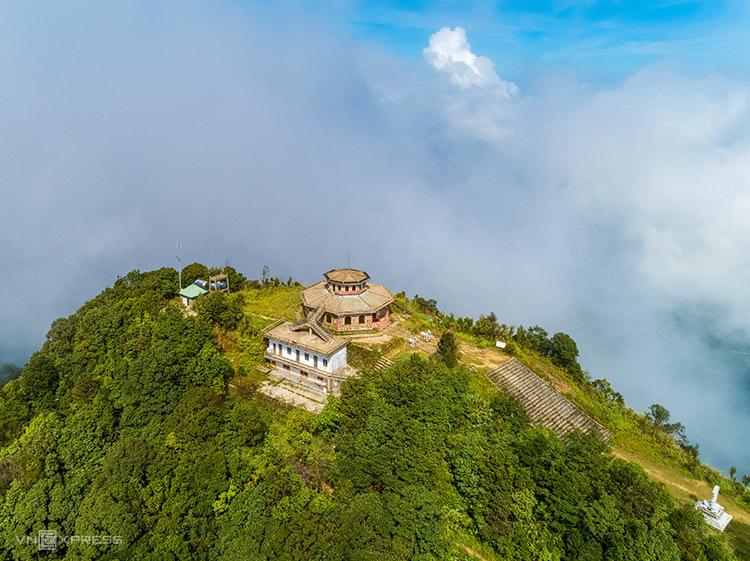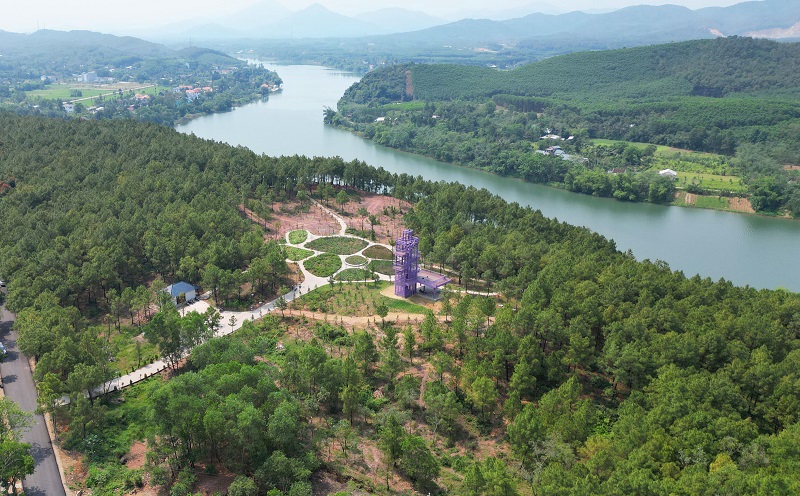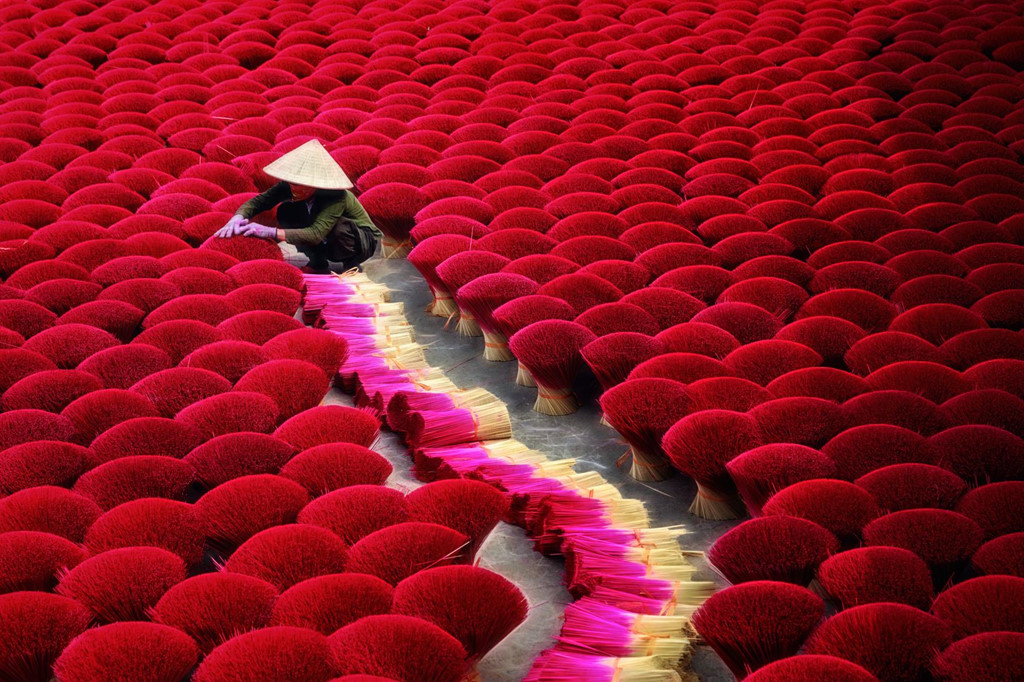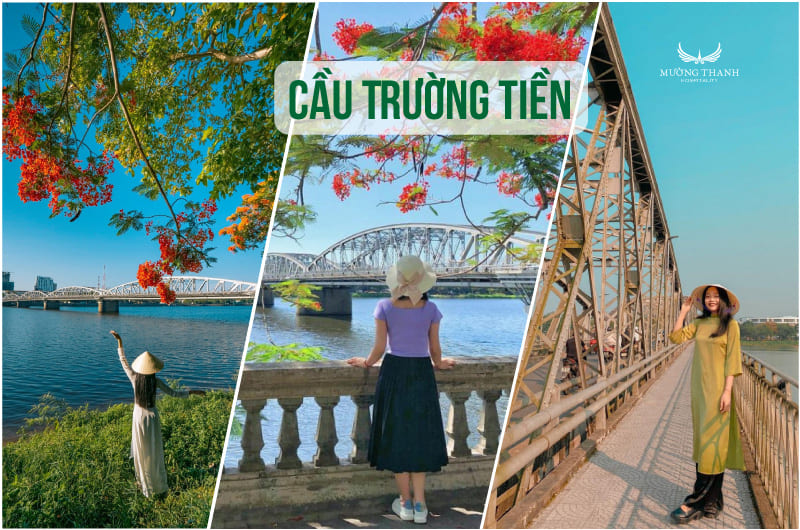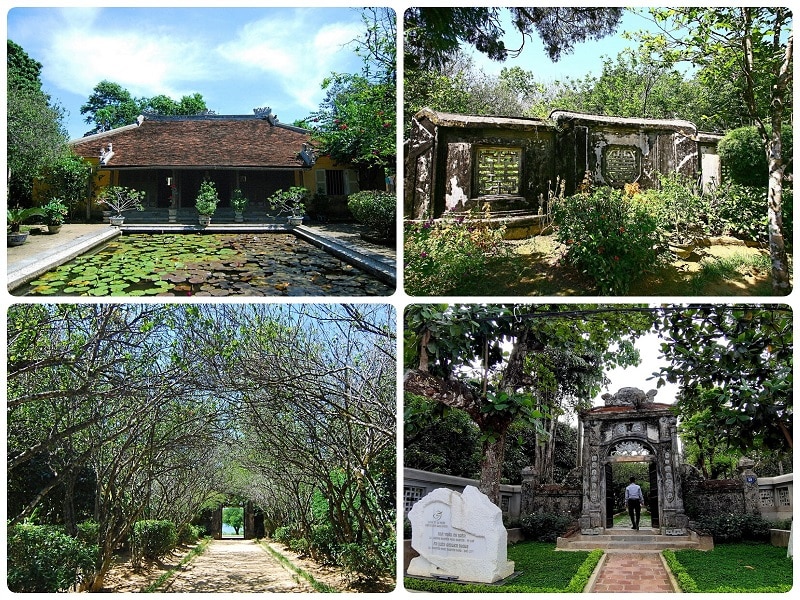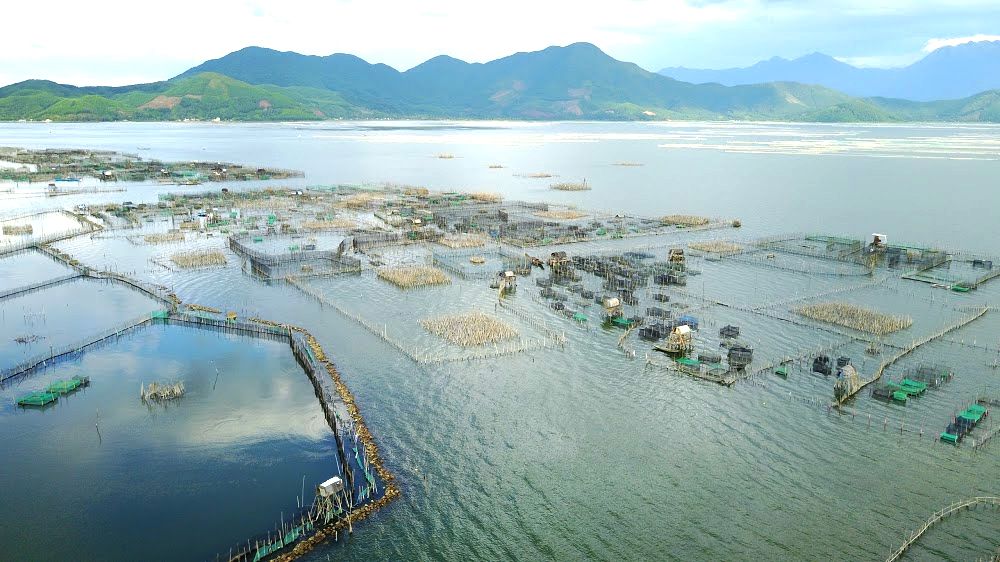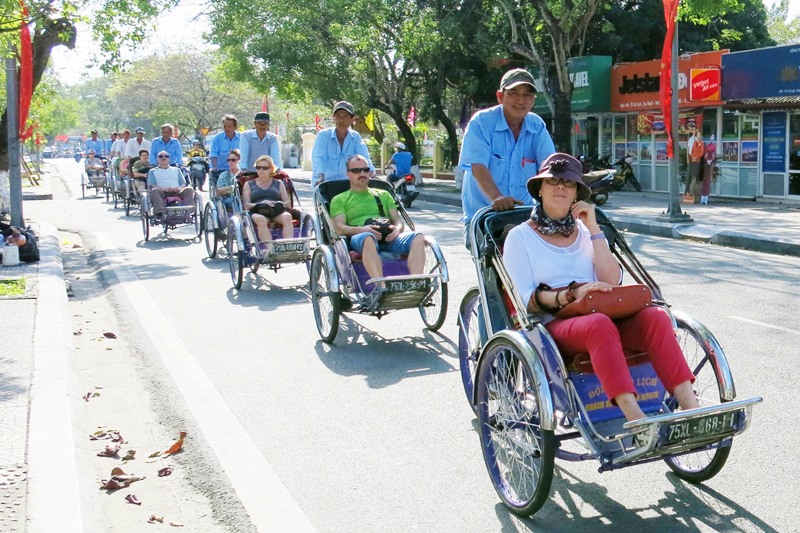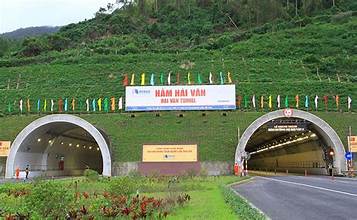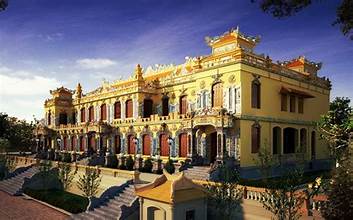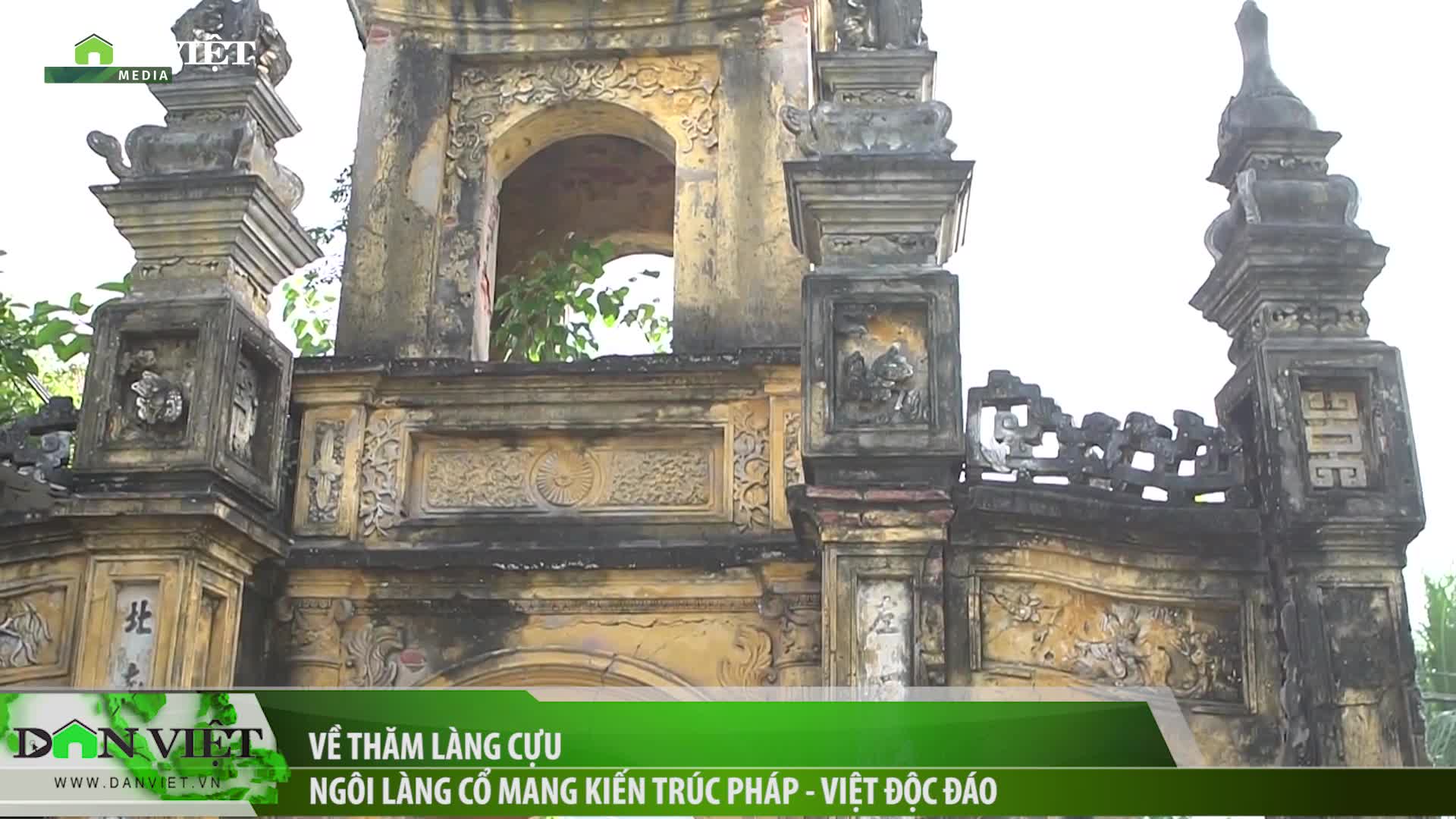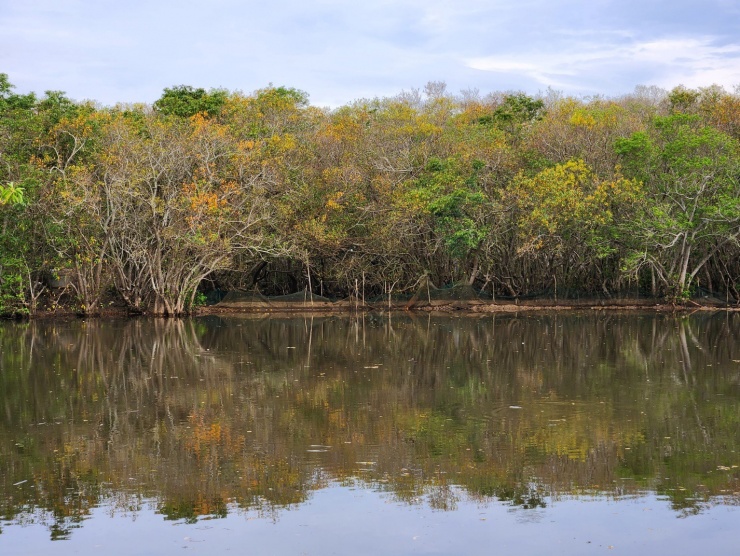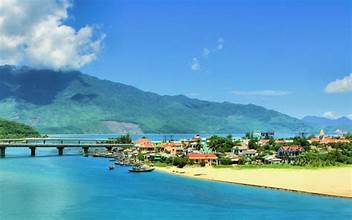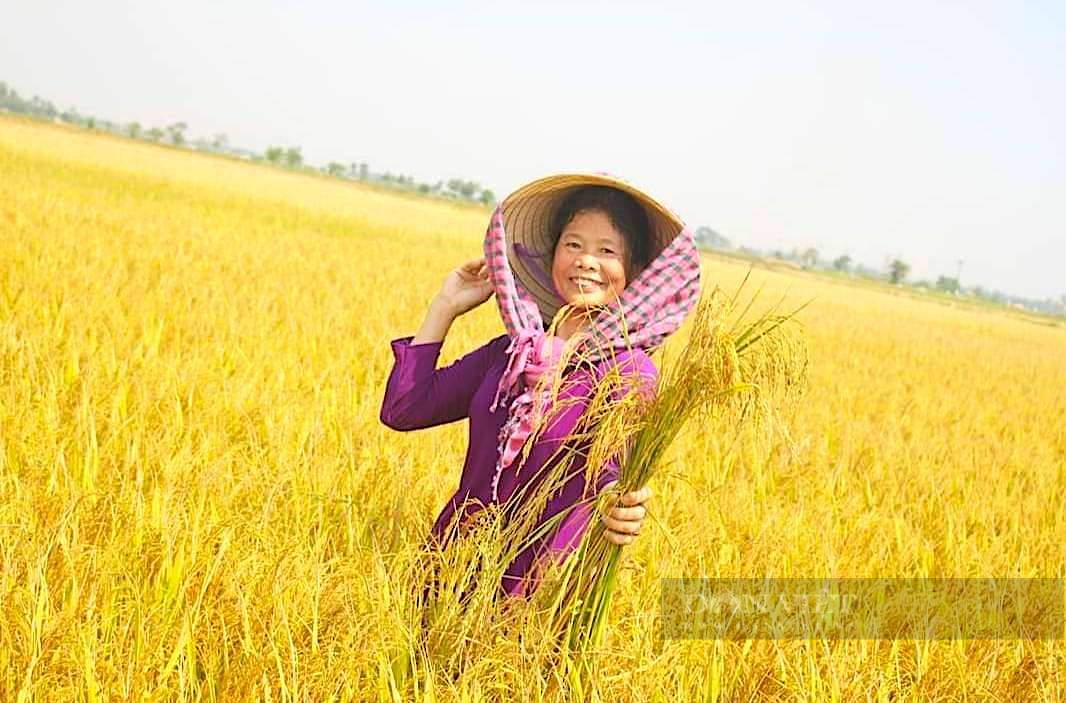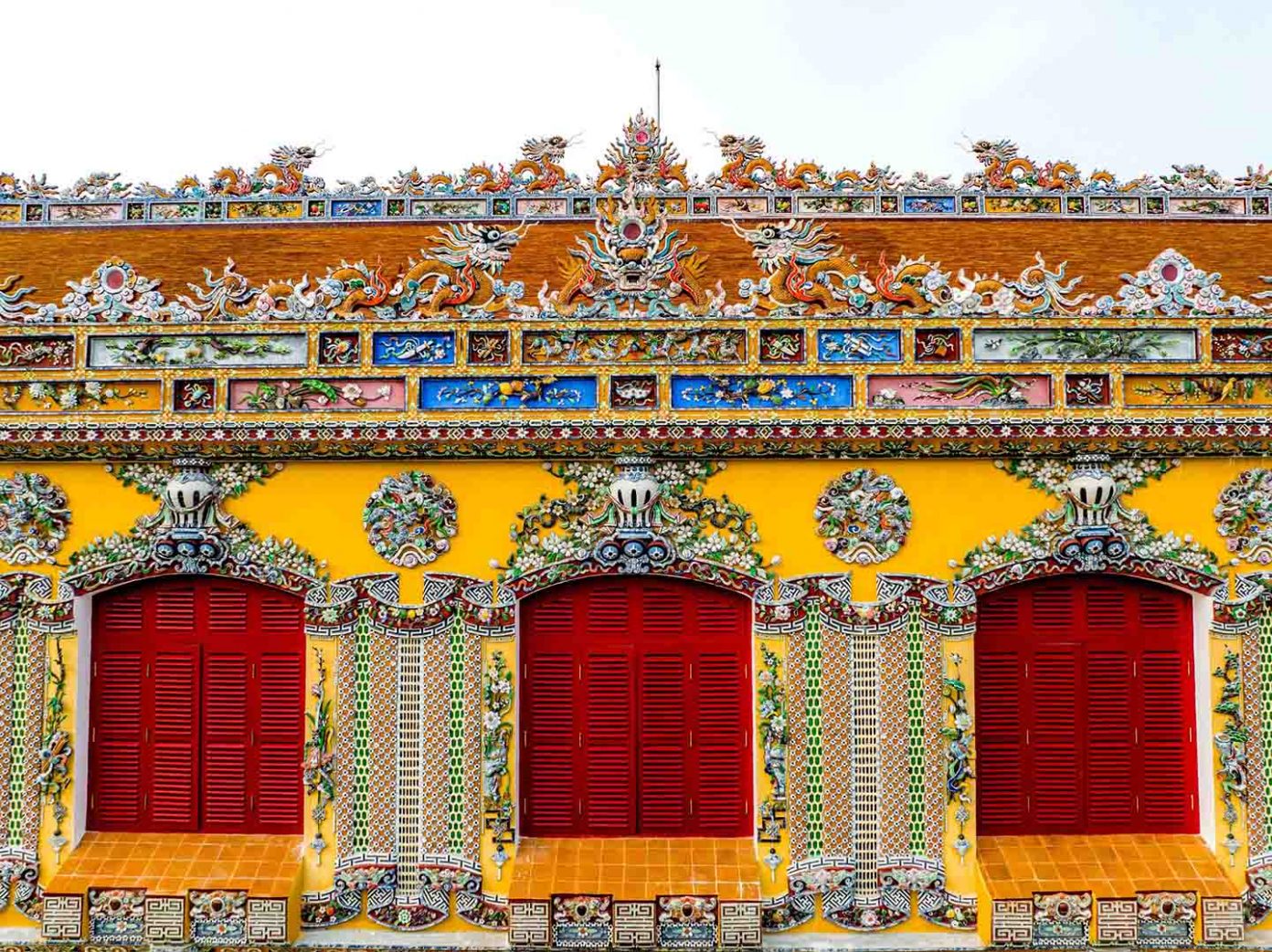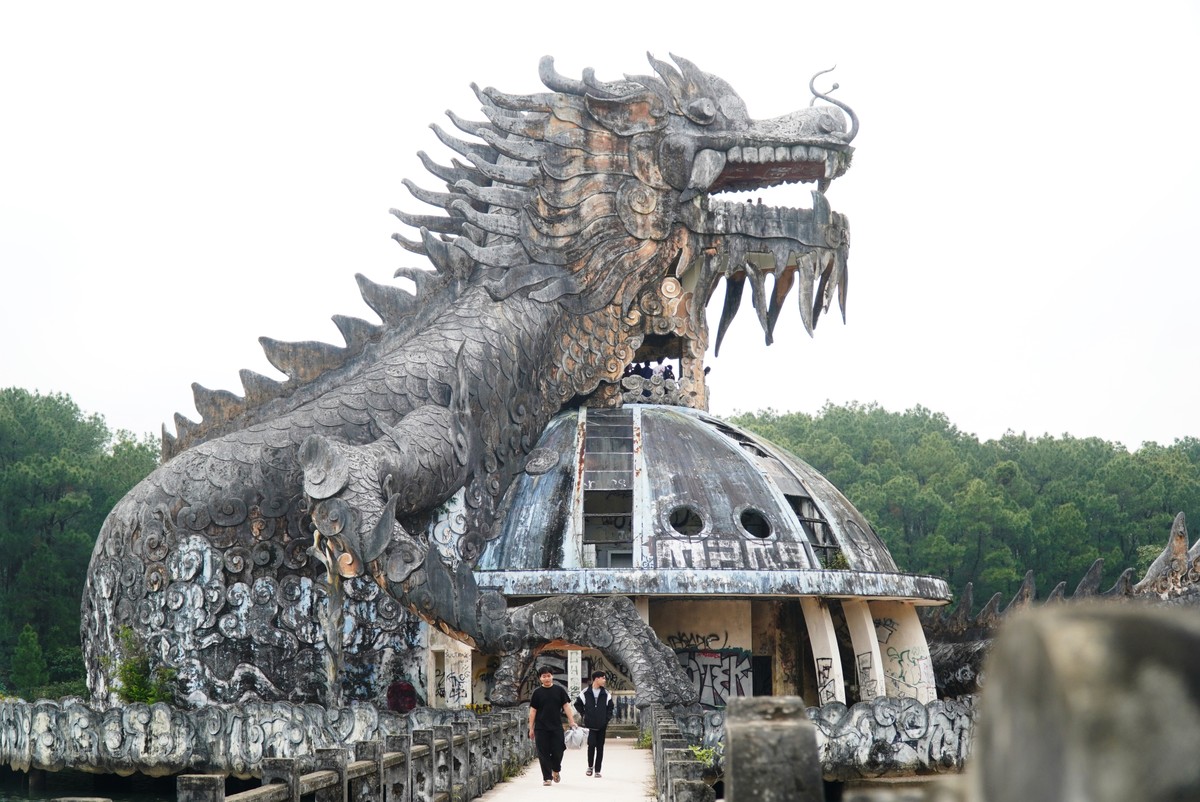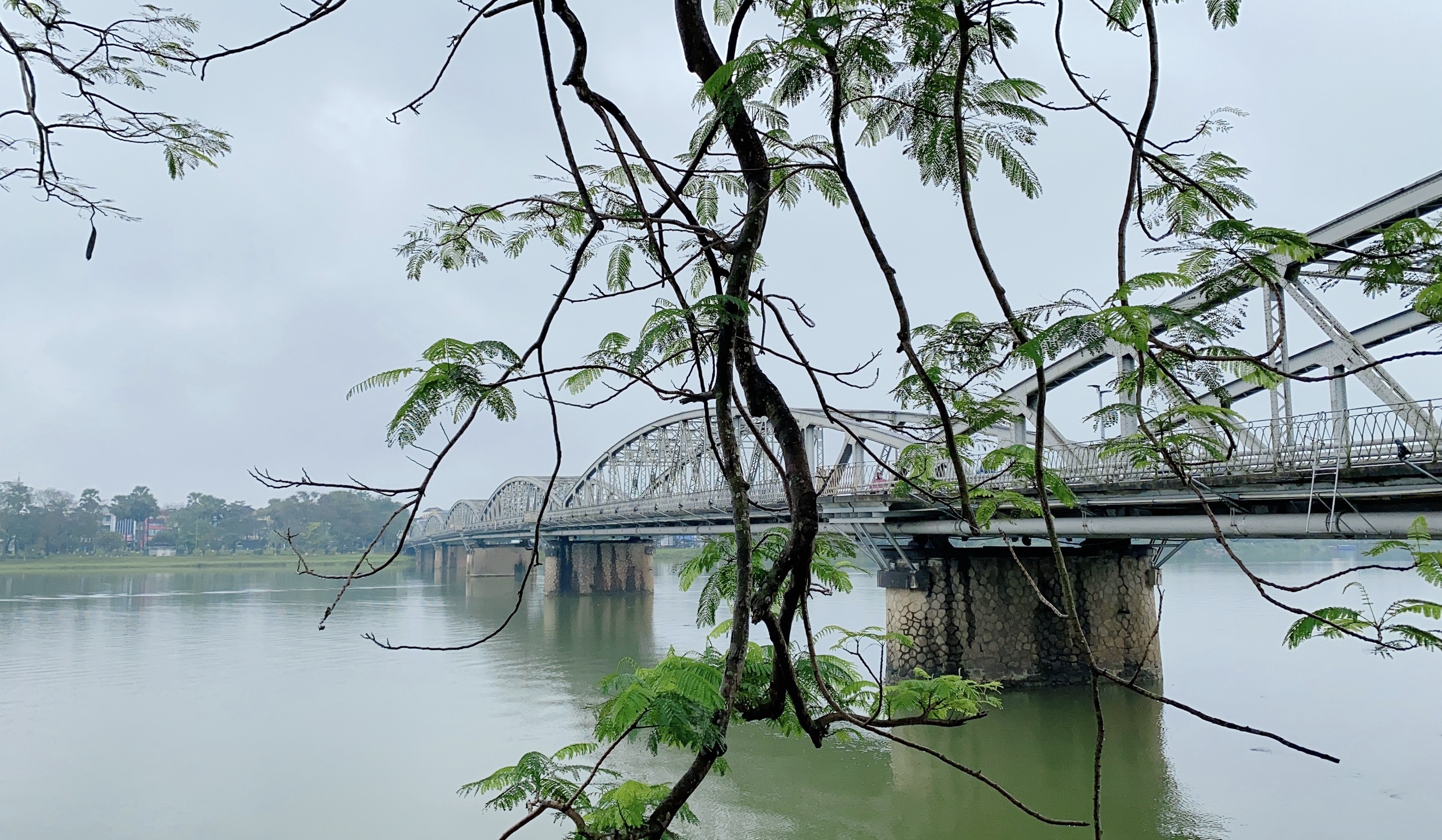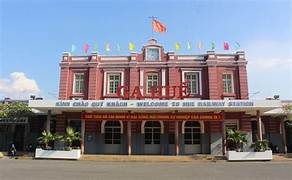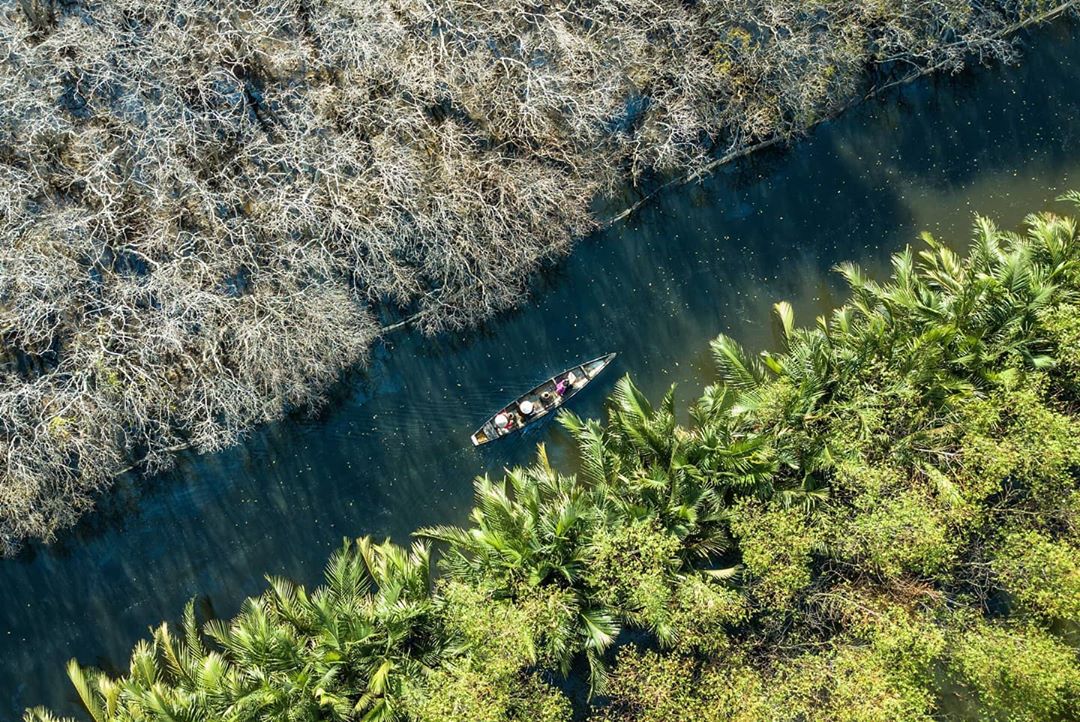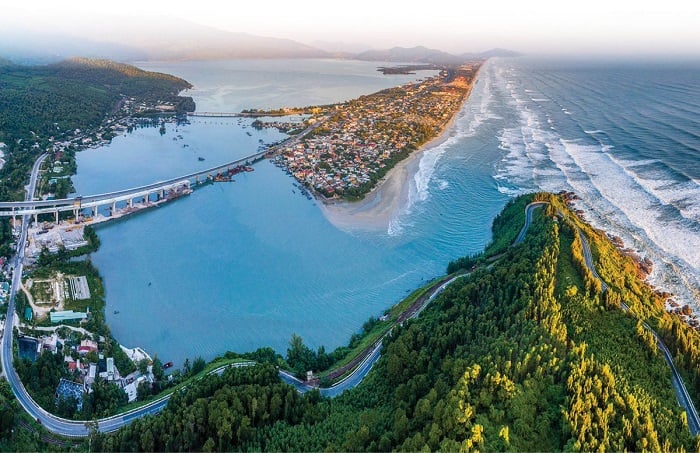Possessing high artistic value and located in large spaces, these monuments crystallize the beauty and noble spiritual qualities of Vietnamese women throughout history.
Possessing high artistic value and located in large spaces, these monuments crystallize the beauty and noble spiritual qualities of Vietnamese women throughout history.
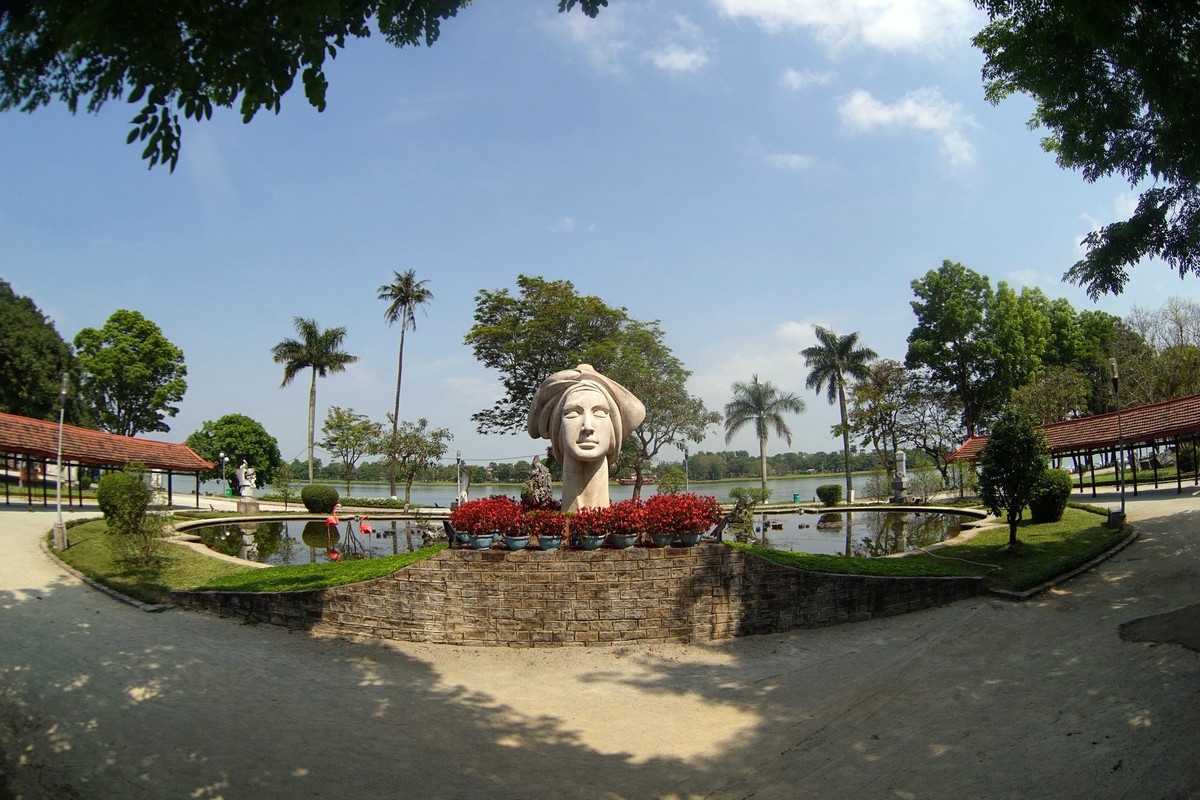
1. Located in Hai Ba Trung park, on the southern bank of the Perfume River, the statue of Vietnamese Girl is a sculpture with a quite special history of Hue. This statue was sculpted by the late sculptor Le Thanh Nhon in 1970 at his personal sculpture workshop in Saigon. The statue is carved from stone in the style of a bust, 2.6 meters high and weighs nearly 5 tons, representing a portrait of a Vietnamese woman with a delicate face, her head wrapped in a scarf in the old style.
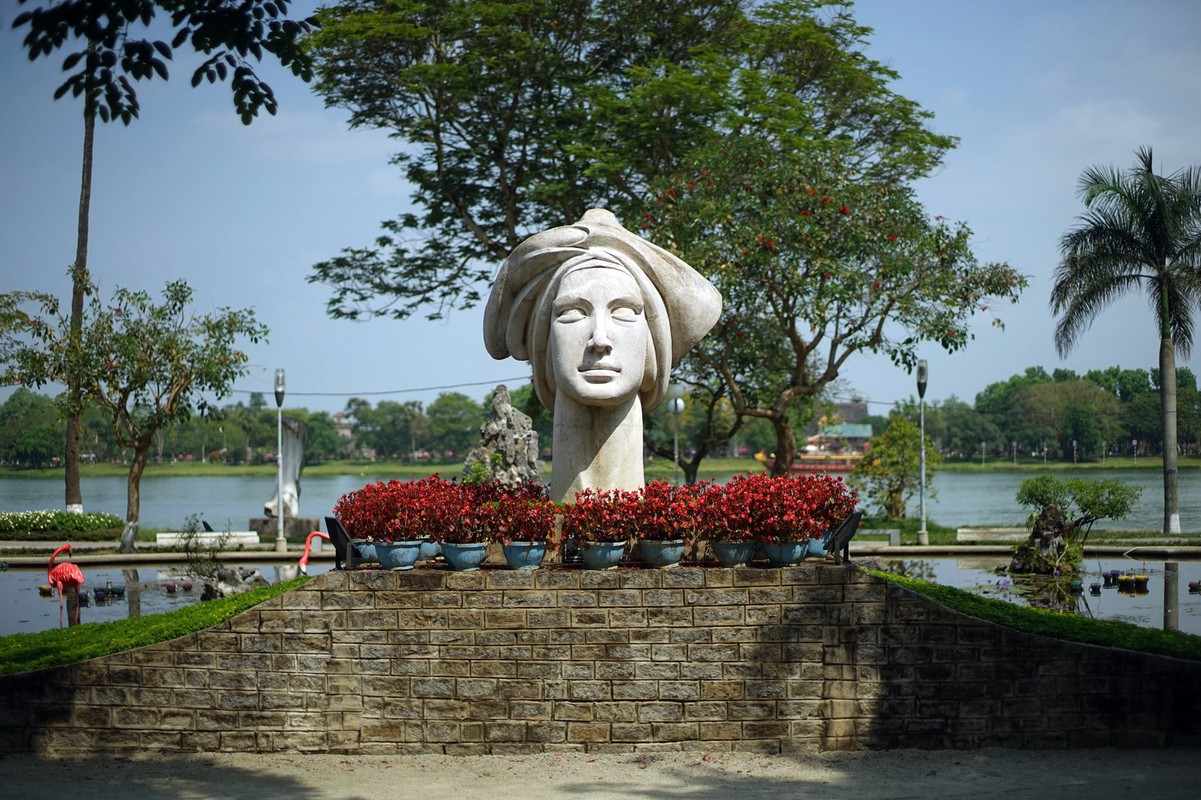
When sculptor Le Thanh Nhon settled in Australia, the statue was temporarily moved to a relative's house in Ho Chi Minh City. According to the story, when bringing the statue into the yard, the homeowner had to demolish part of the fence. Before his death in 2002, sculptor Le Thanh Nhon sent a letter to his friend, translator and Hue scholar Buu Y, living in Hue, with the intention of bringing the statue of Vietnamese Girl back to Hue.
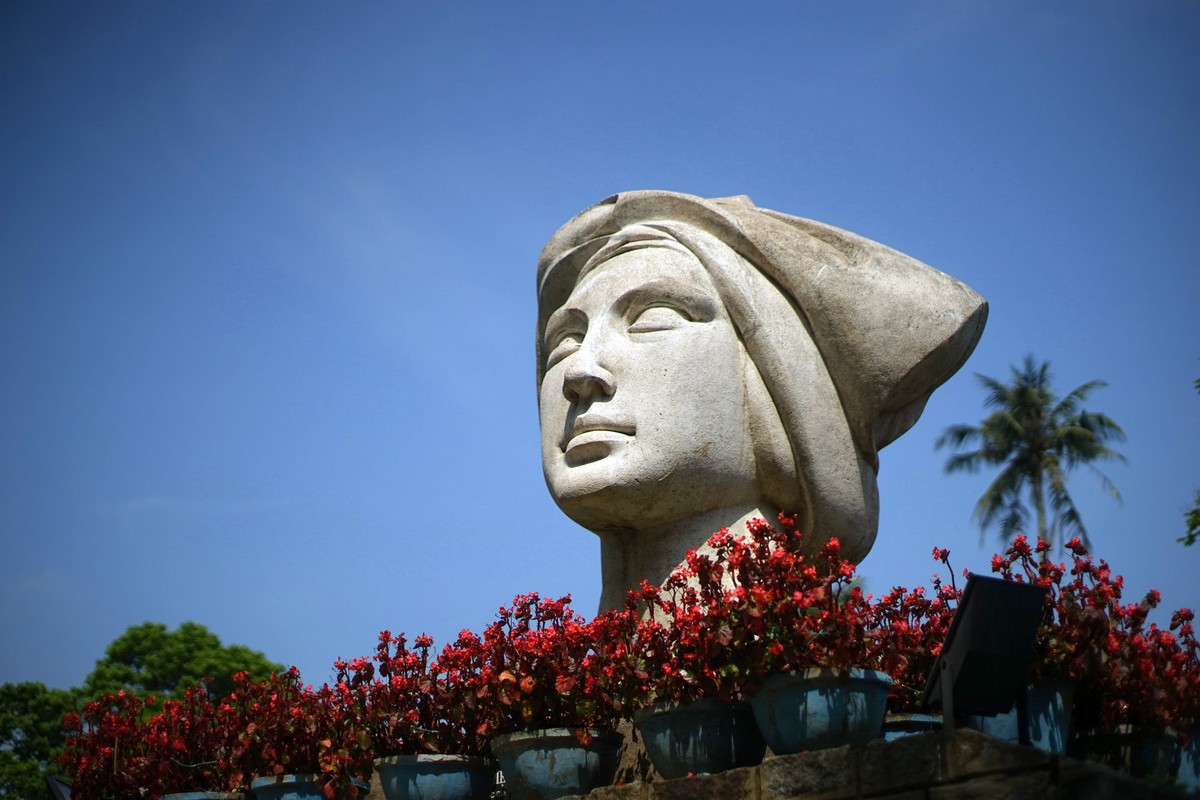
Implementing the sculptor's wishes, the People's Committee of Thua Thien - Hue province has repeatedly contacted and discussed with Le Thanh Nhon's family. After many years, the work was completed with the consent of the parties. In April 2011, the statue of the Vietnamese Girl was brought to Hue City and placed in Hai Ba Trung park, in front of the old Dong Khanh Girls' School, currently Hai Ba Trung High School. The statue was inaugurated on the 36th anniversary of the country's unification (April 30, 1975 - April 30, 2011).
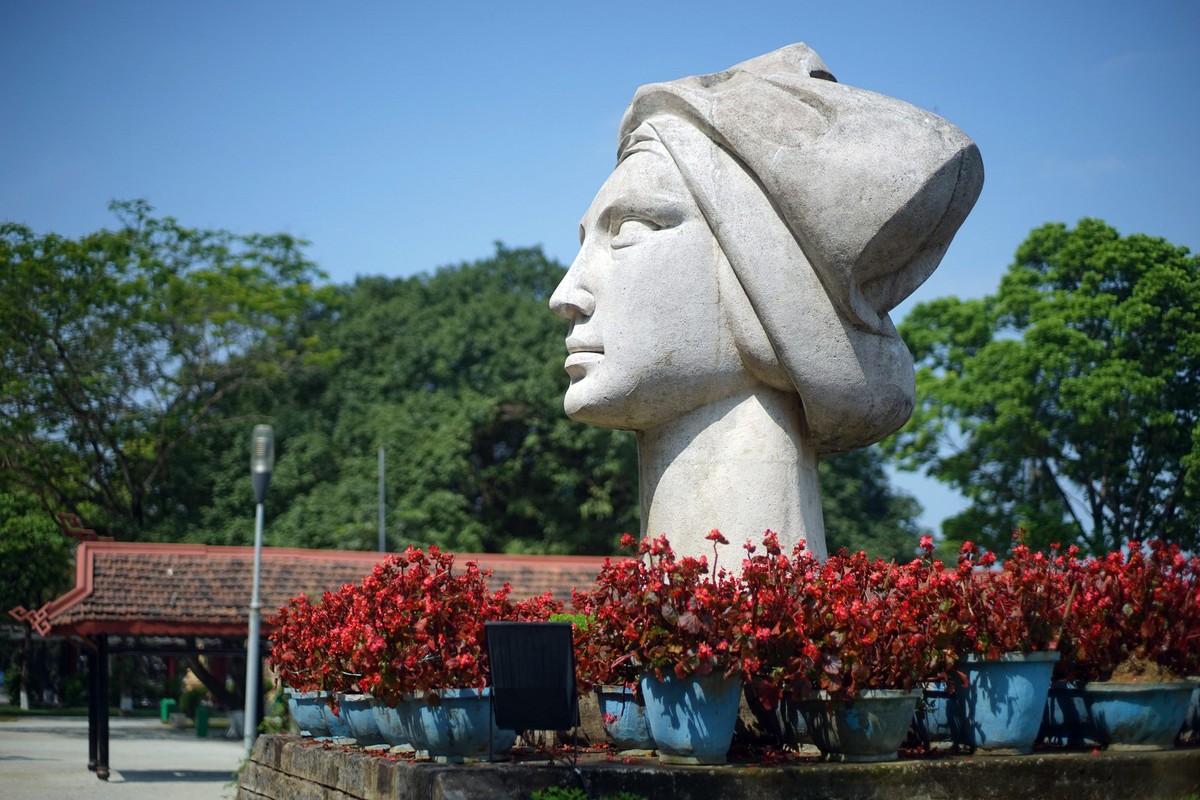
After being brought to Hue, the Vietnamese Girl statue is located in a spacious, airy campus with many trees. Today, this work of art meant to honor Vietnamese women has become a unique cultural highlight on the banks of the Perfume River in the ancient capital of Hue.
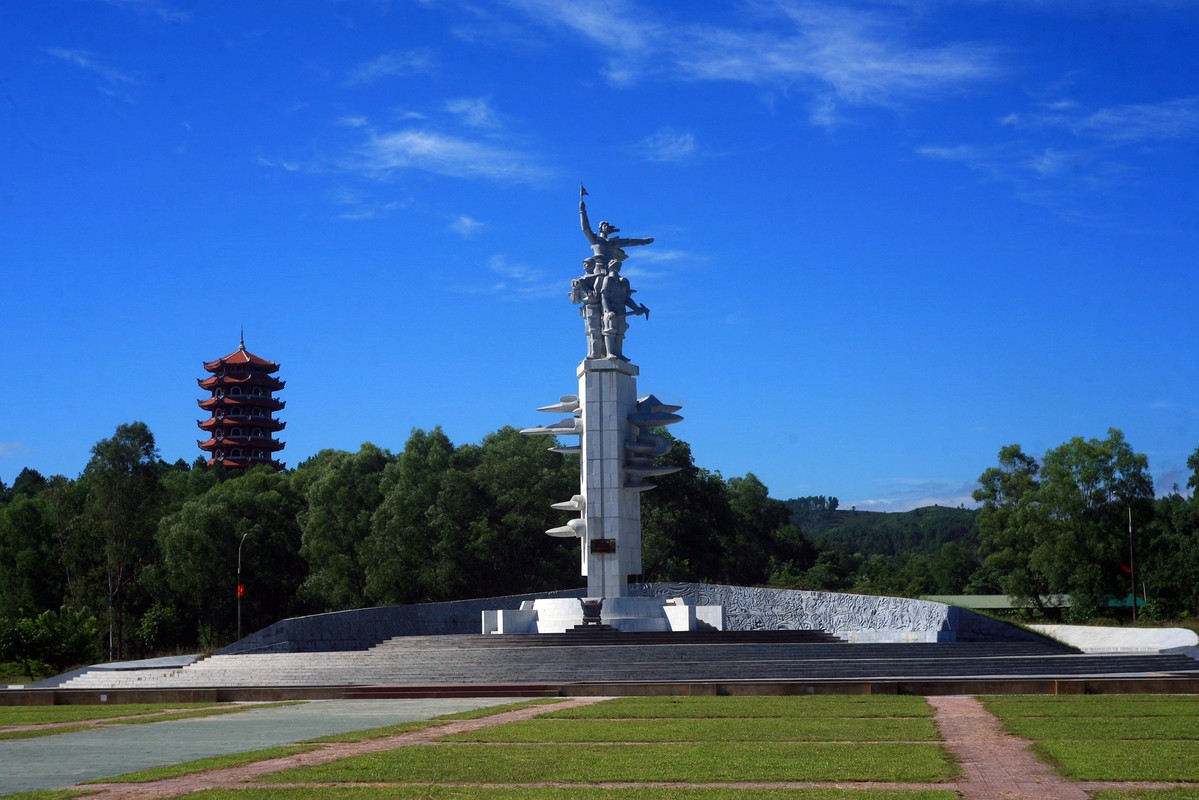
2. Located in the Dong Loc Junction historical relic area (Can Loc district, Ha Tinh province), the Victory Monument is a work honoring the will to win and the sacrifices of the youth volunteer force and soldiers. , workers, militia and guerrillas... on the Ho Chi Minh trail during the resistance war against the US. The centerpiece of the monument is the image of a young female volunteer standing tall, waving a flag to guide the convoys into the South.
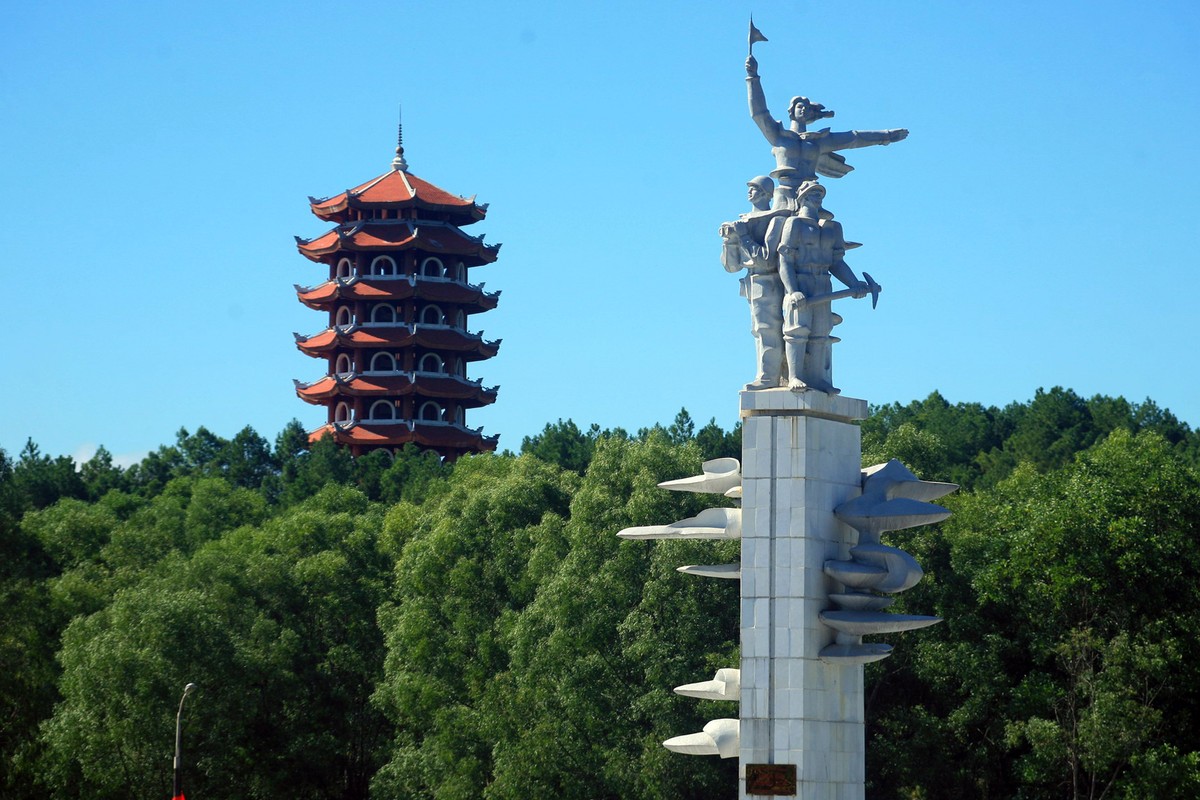
The monument faces Dong Loc intersection, a place associated with the sacrifice of 10 young female volunteers in the struggle to unify the country. During the resistance war against the US, Dong Loc Junction was an important intersection on Truong Son road. In the summer of 1968, there was a youth volunteer squad here consisting of 10 young girls, aged 17 to 24, whose task was to guard intersections, defuse bombs and repair roads when bombed.
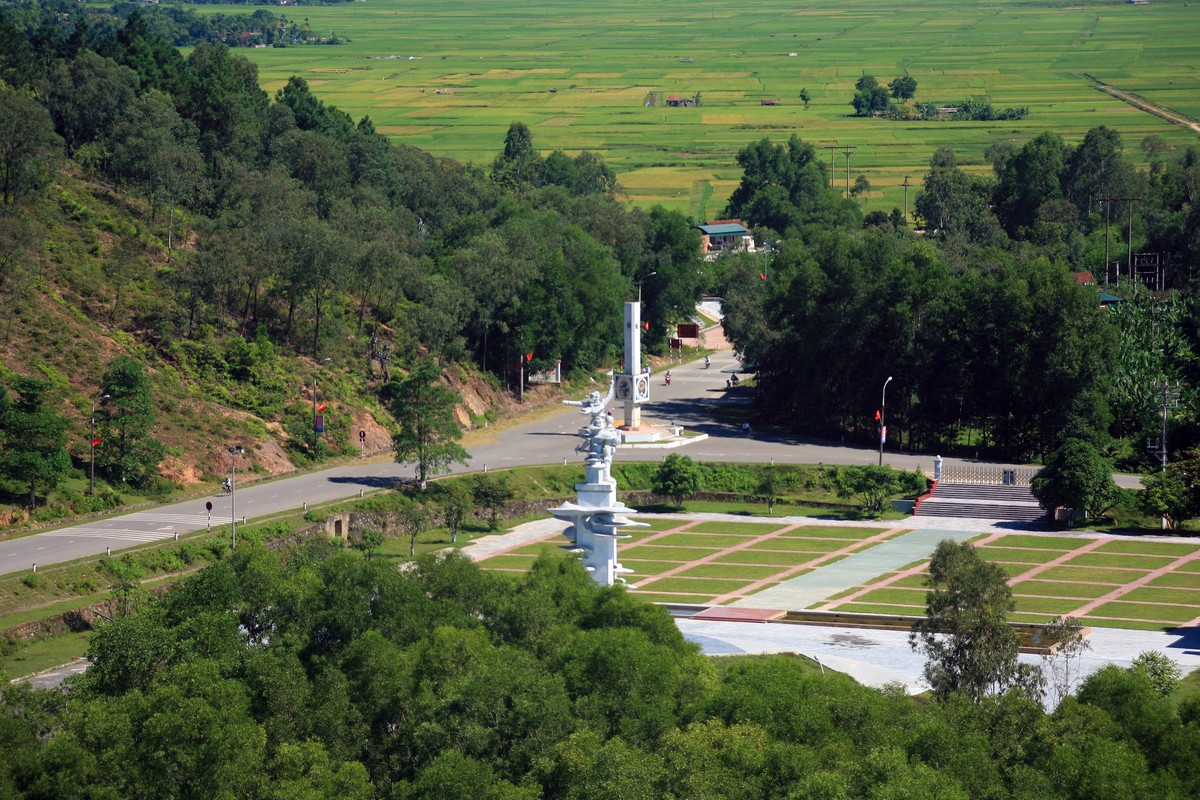
On the afternoon of July 24, 1968, the girls were given a key order in the area where the enemy had just dropped bombs to fill in bomb craters and repair the road, combined with repairing bunkers and deepening drainage ditches in the unique road section to quickly Clear the way for vehicles to pass. Suddenly a group of jets from North to South passed over the key point. All the girls quickly lay down on the street. When the plane ended, the girls quickly returned to work. Suddenly, a group of enemy jets turned back and dropped a series of bombs that hit the basement where the girls had just taken shelter.
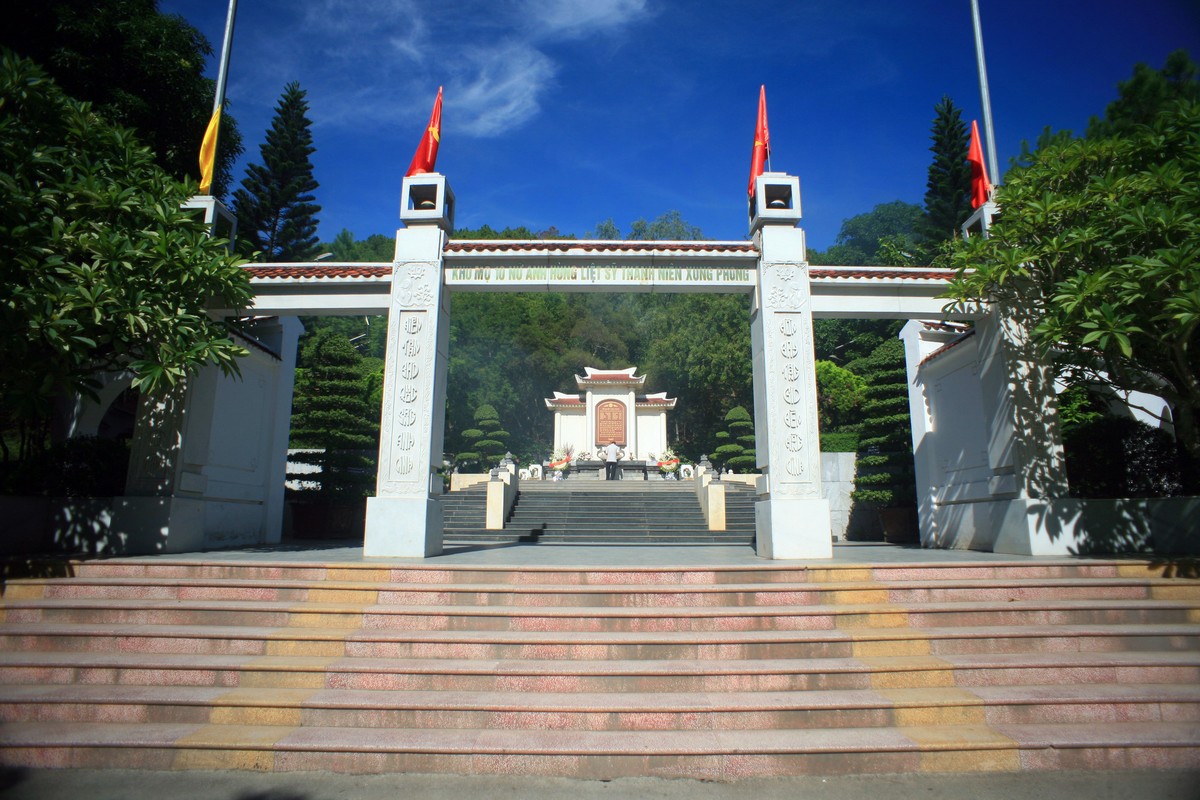
The youth volunteer squads followed behind and rushed forward, but no one was seen or a human voice was heard. All 10 of them sacrificed their lives at a very young age, most of them unmarried... The sacrifice of the 10 young female volunteers at Dong Loc Junction is a condensed symbol of the spirit of Heroism - Indomitability - Loyalty. The bravery and courage of Vietnamese women as well as the entire youth volunteer force during the resistance war against America.
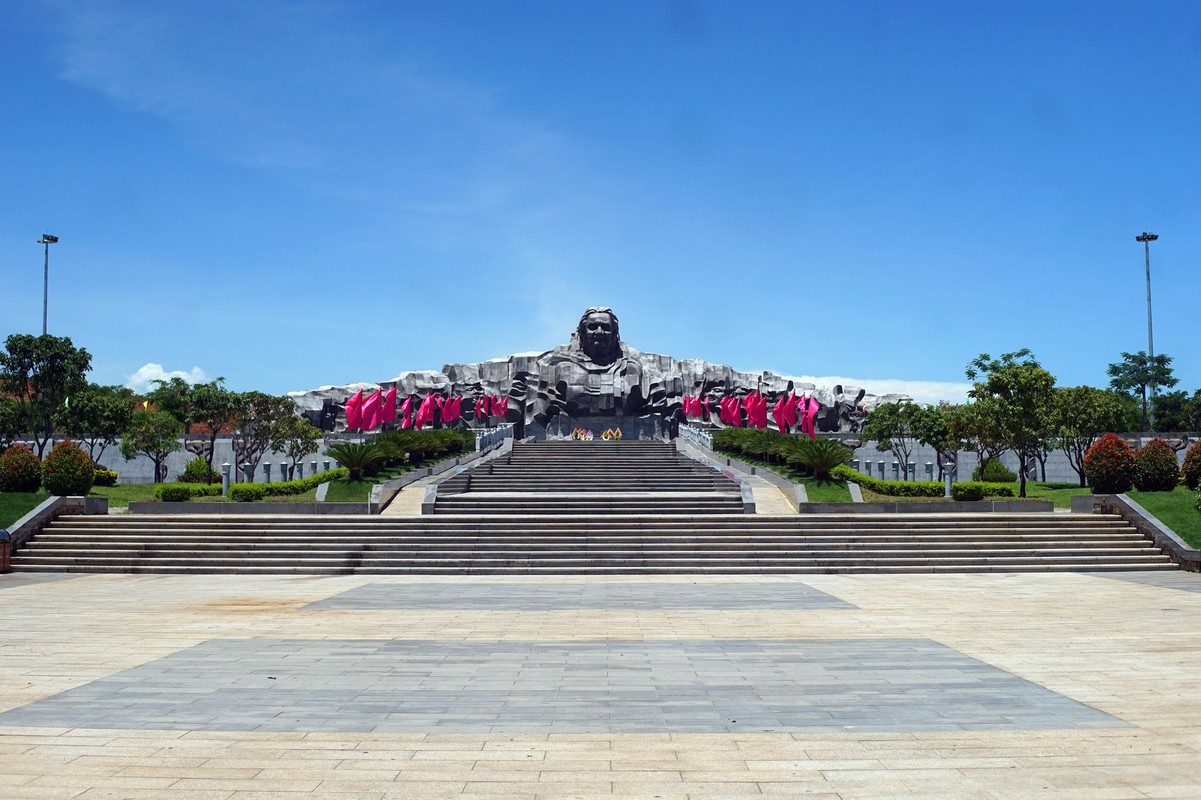
3. Located on Cam Mountain in Tam Phu commune, Tam Ky city, Quang Nam province, the Heroic Vietnamese Mothers Monument was built from 2009-2015 to commemorate the contributions of Vietnamese women in the war. the defense of the Fatherland. The history of the project began in 2004, when the leadership of the Voice of Vietnam campaigned to build the Monument of Vietnamese Heroic Mothers among people of all walks of life and organizations. The locality where the monument was built is Quang Nam province, the province with the most heroic Vietnamese mothers with 11,234 people.
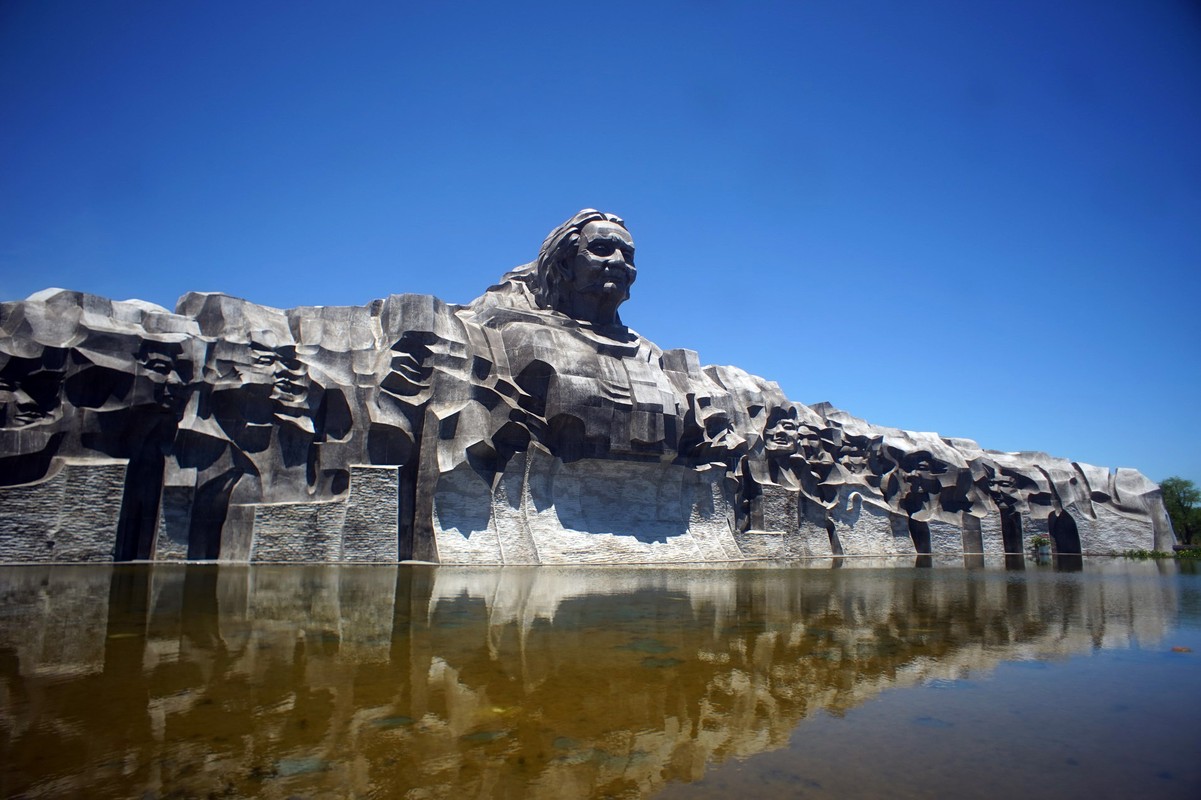
The Monument to Vietnamese Heroic Mothers is located on a campus with a total area of 15 hectares. The center of the architectural complex is the monument of Vietnamese Heroic Mother Nguyen Thi Thu (1904-2010) made of sandstone, with an arc shape over 100 meters long. On both sides of the bow are carved images of 11 children of Mother Thu who died in the nation's two resistance wars against the French and the Americans.
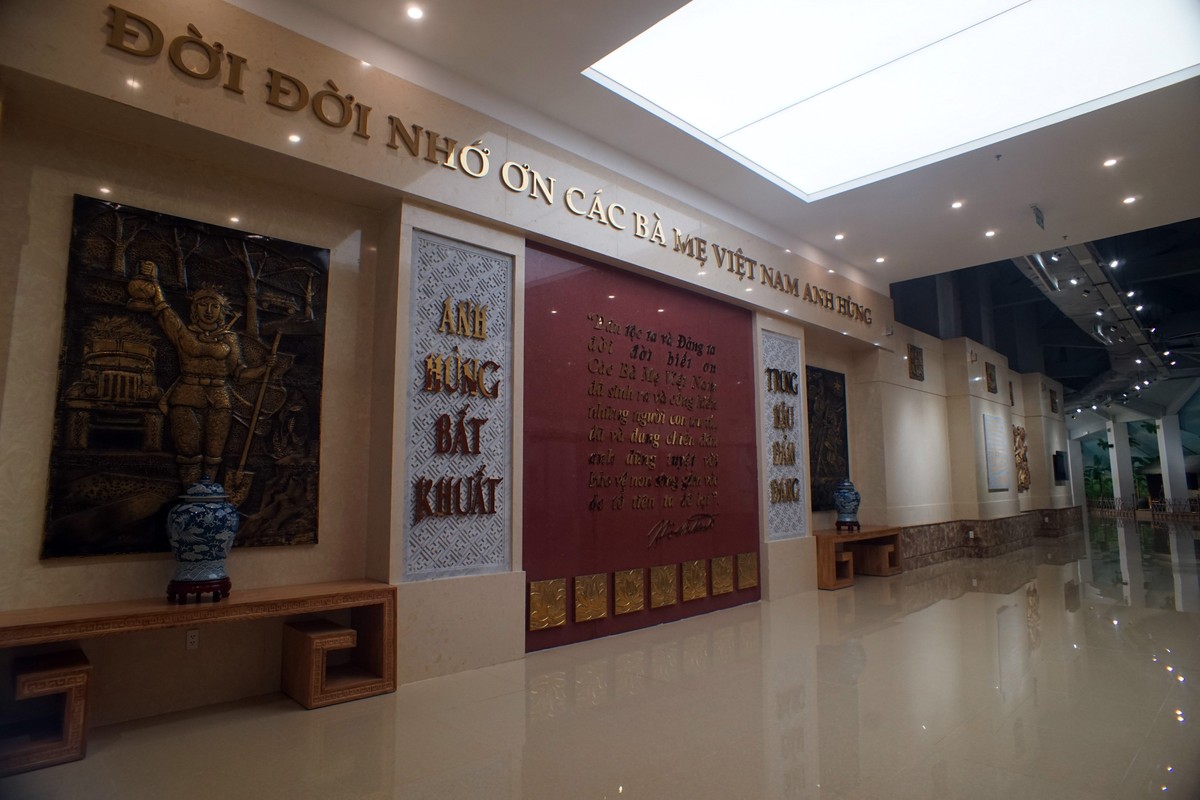
Inside the statue is a museum with an area of 400 m2, including a gallery, preservation room and a place to register more than 50,000 heroic Vietnamese Mothers. The museum spaces introduce many images and artifacts depicting the lives and noble contributions of Mothers to the Fatherland.
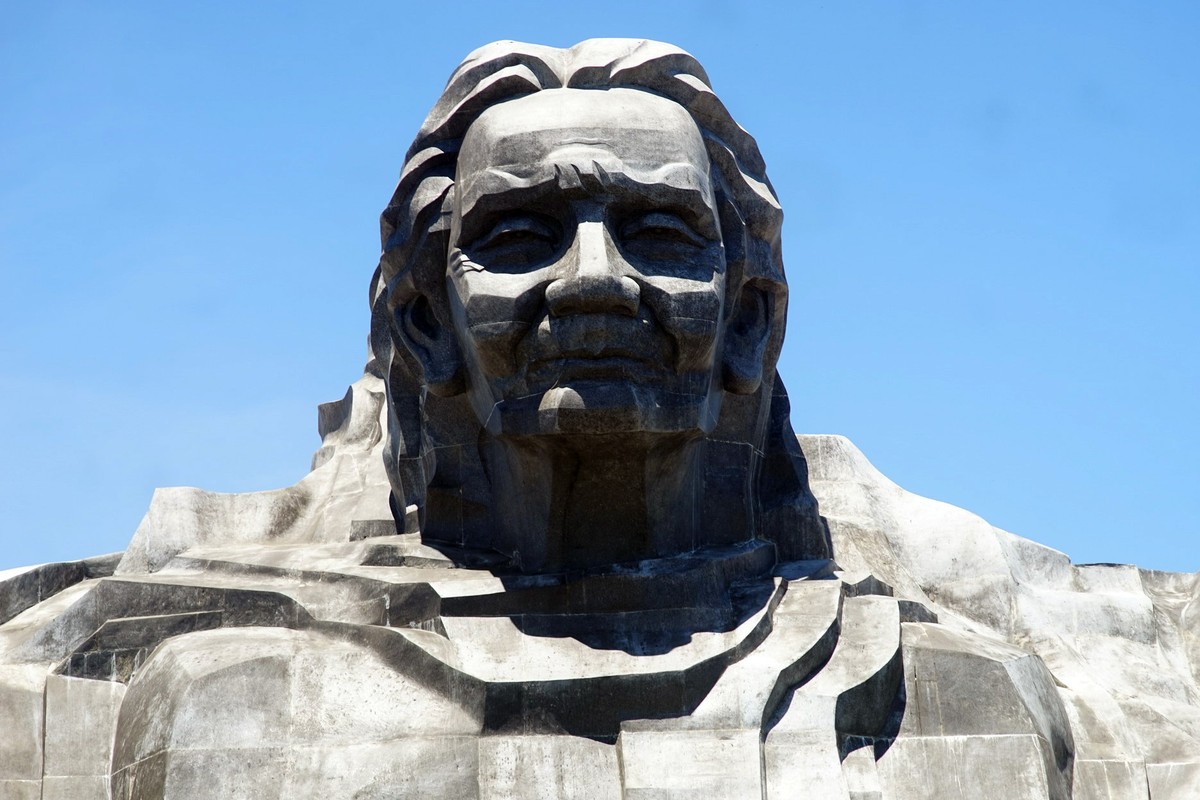
After its inauguration, the Monument to Vietnamese Heroic Mothers has become a new destination attracting a large number of domestic and foreign tourists, bringing practical benefits to the local economic and social development. . Most importantly, the Monument is a point of origin with enormous historical and humanistic value, contributing to educating the tradition of drinking water, remembering its source, and educating patriotism for all classes of people, especially the elderly. for today's young generation.
Hue
2039 view
Update day
: 17/10/2023
Quốc Lê


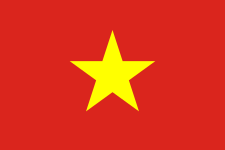 vn
vn en
en ja
ja ko
ko zh
zh


















